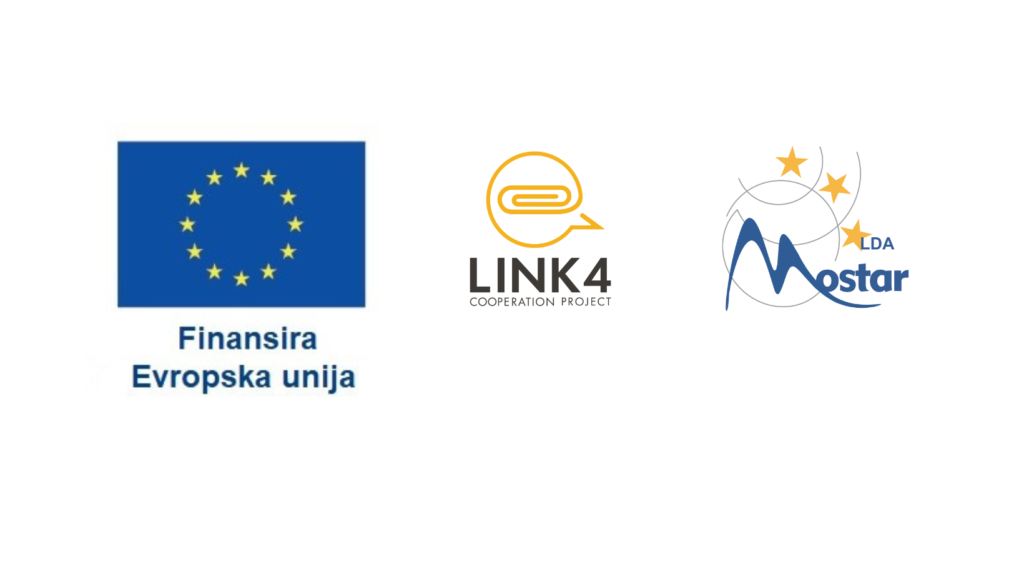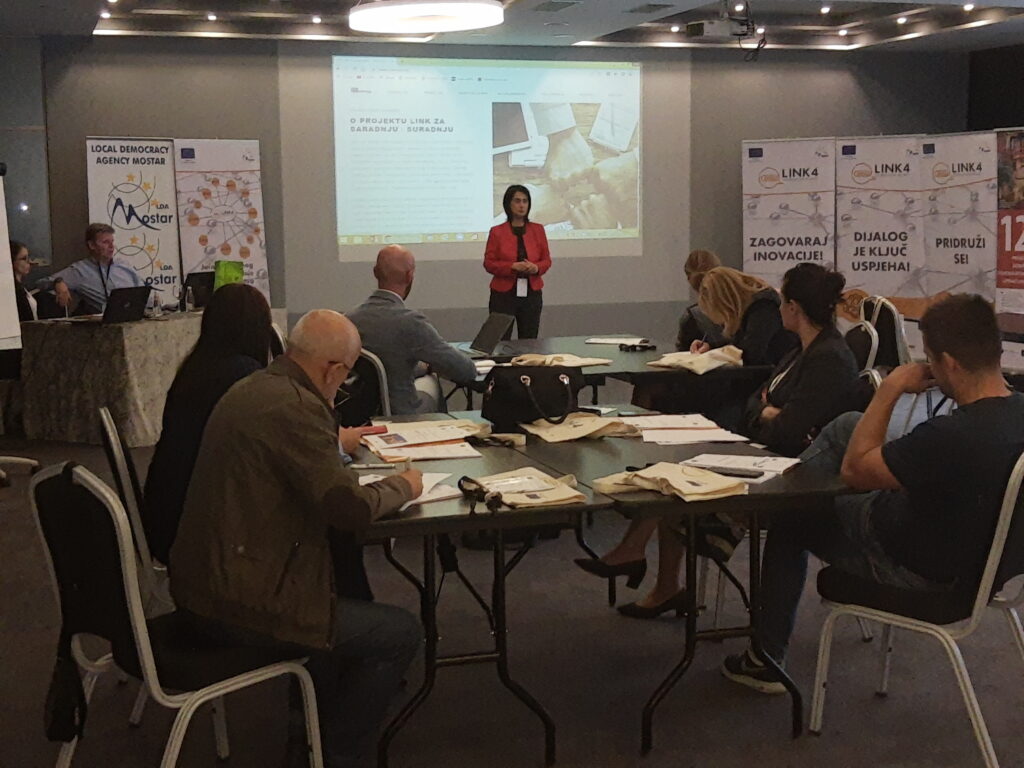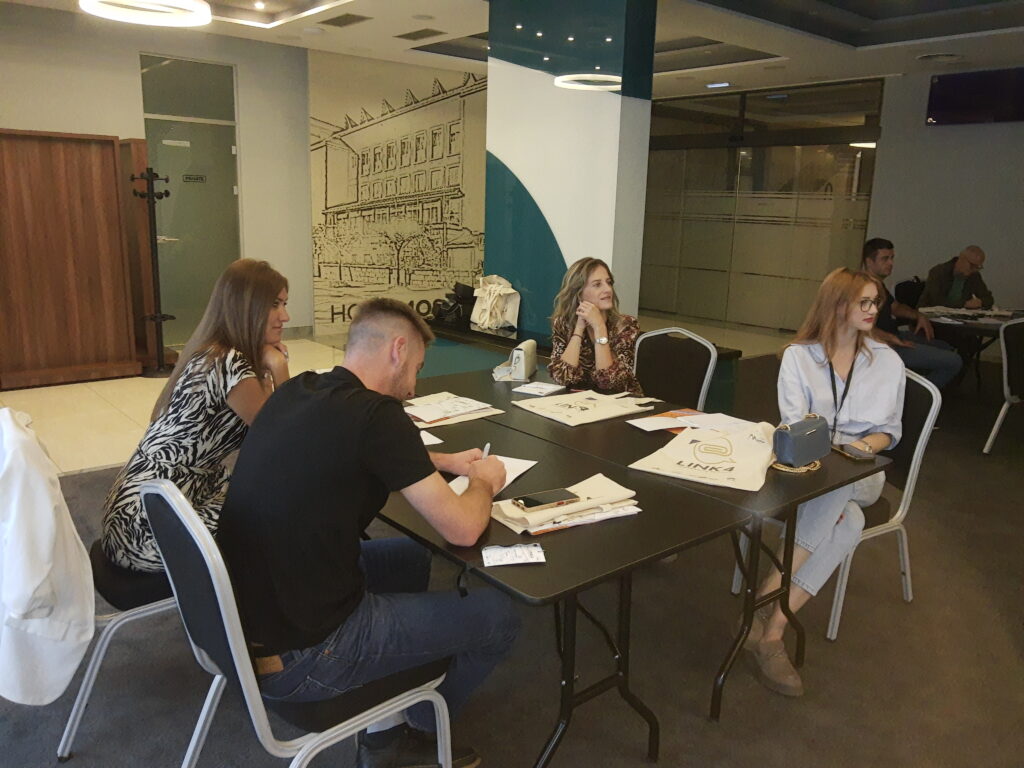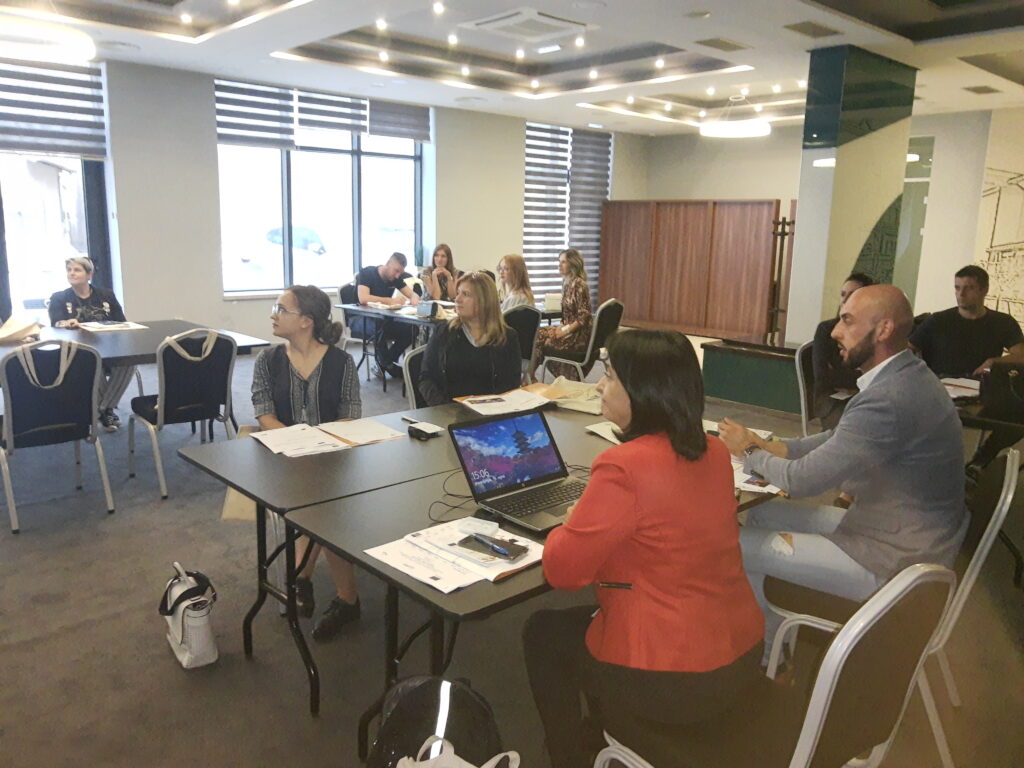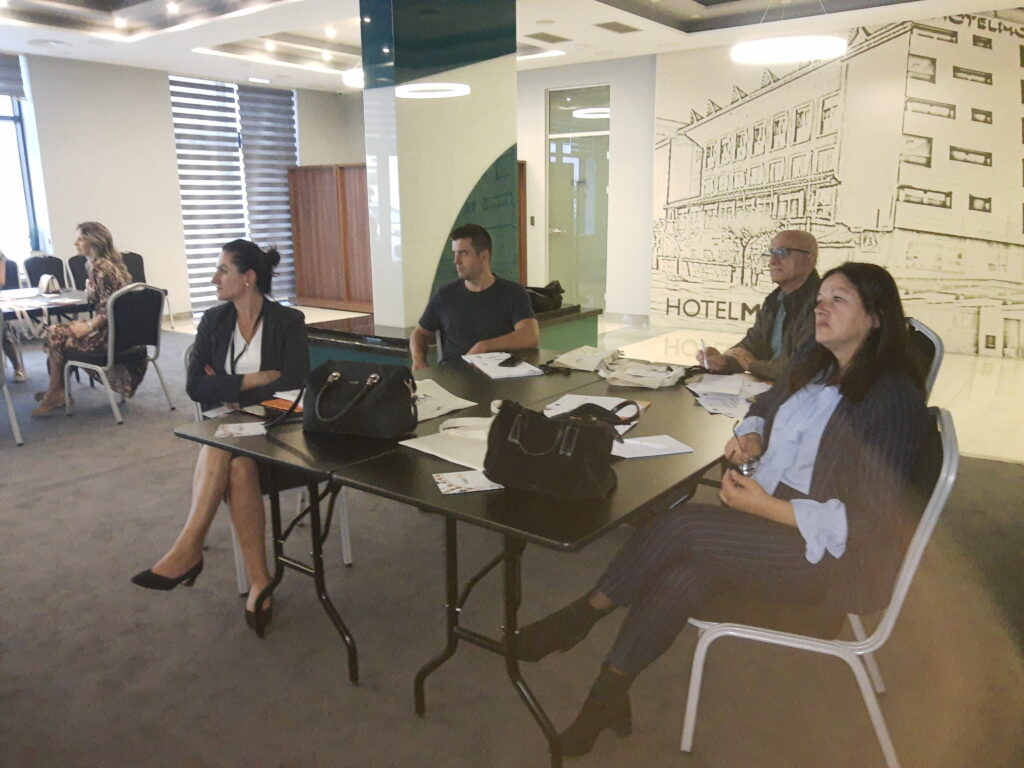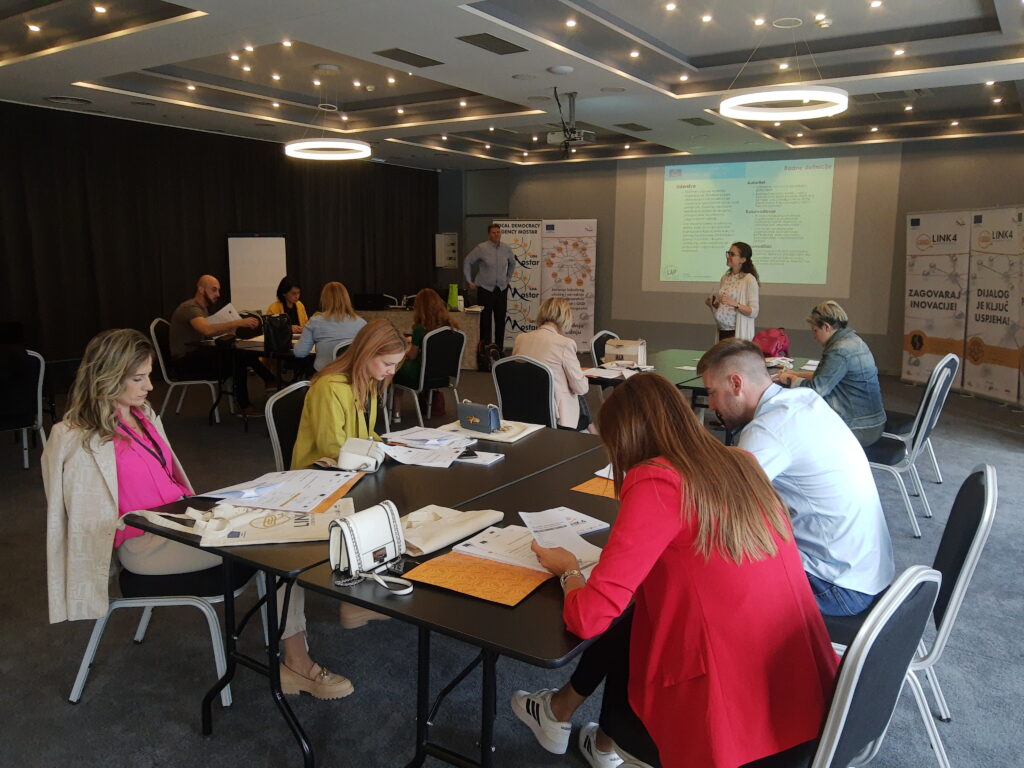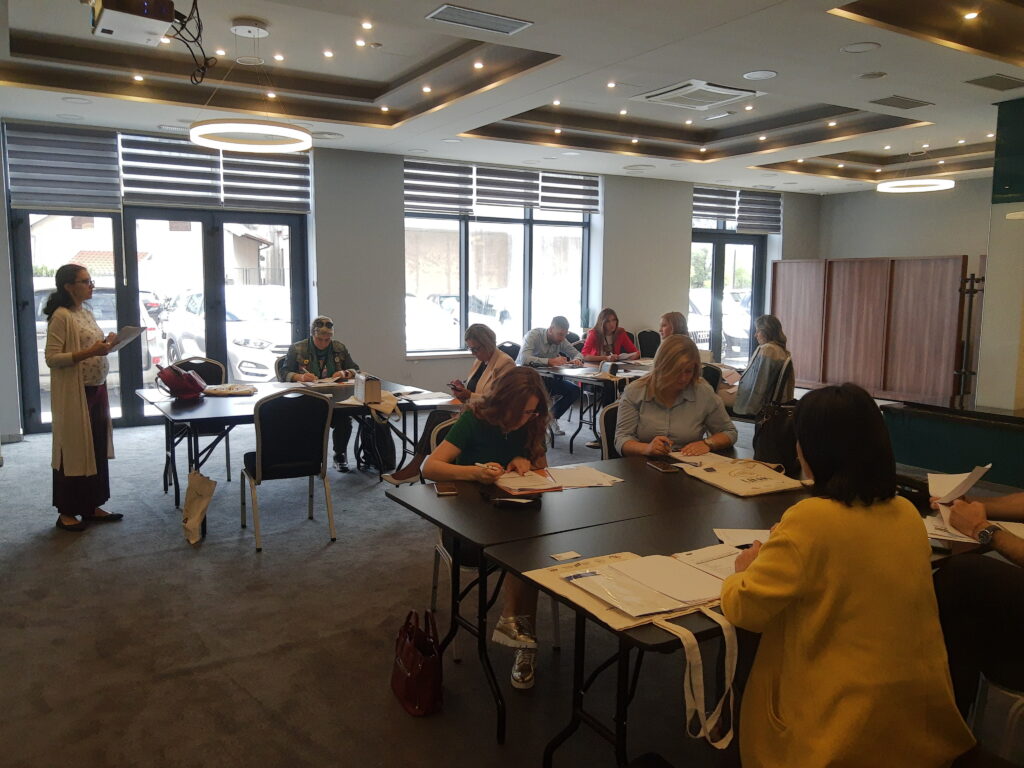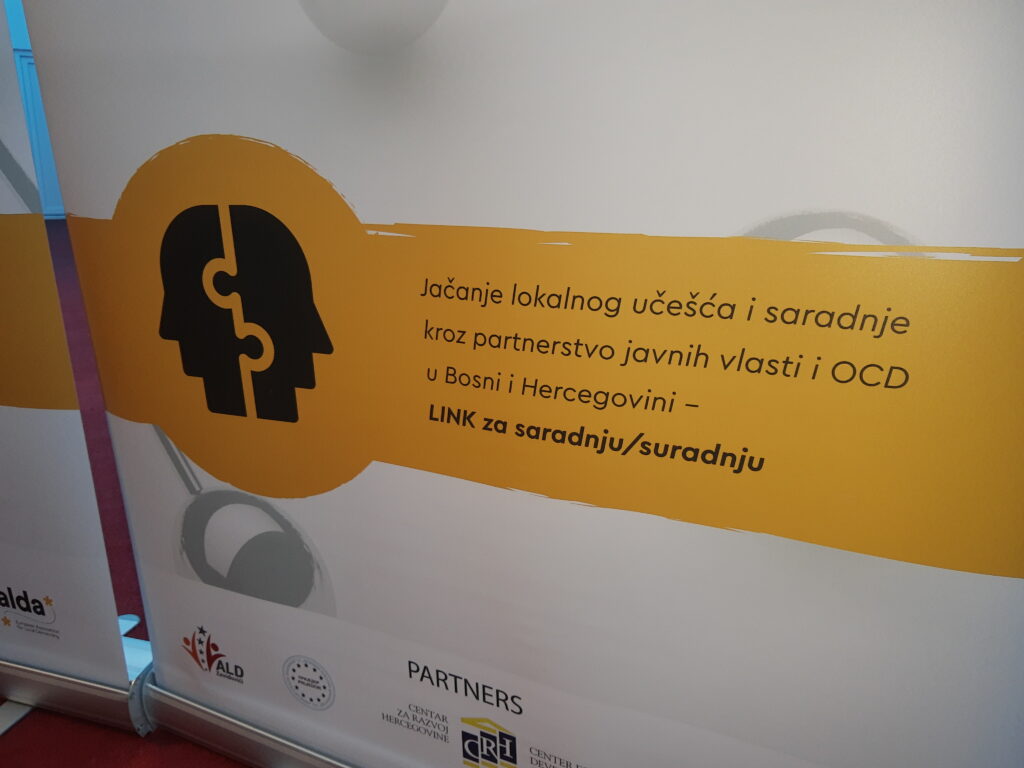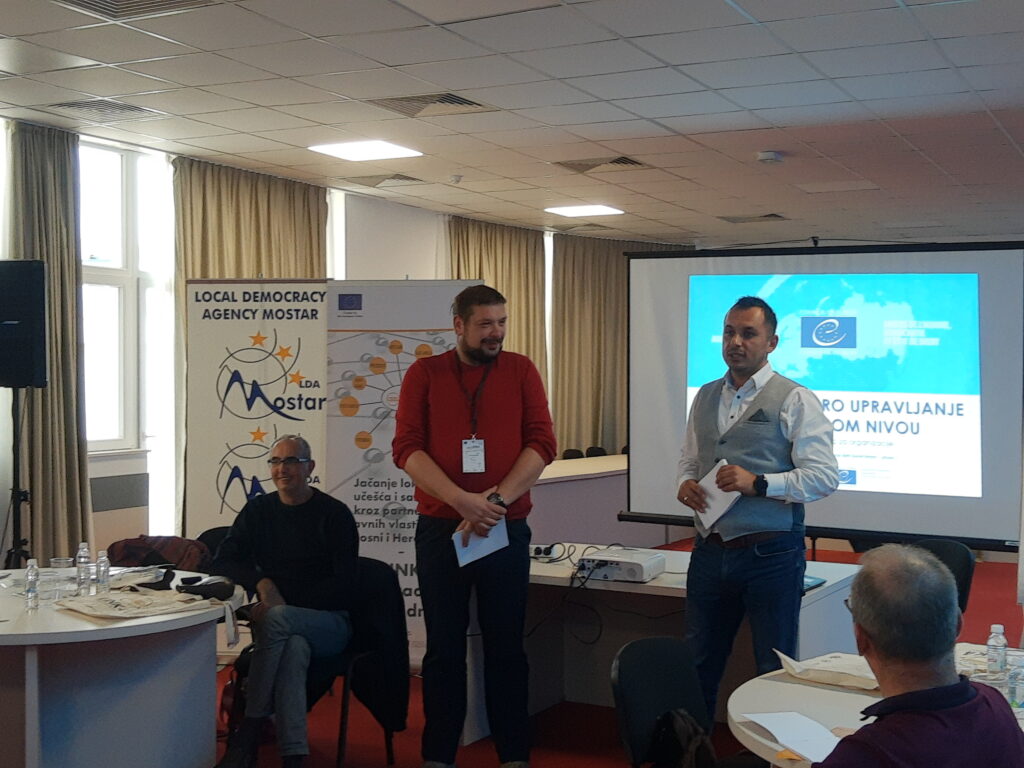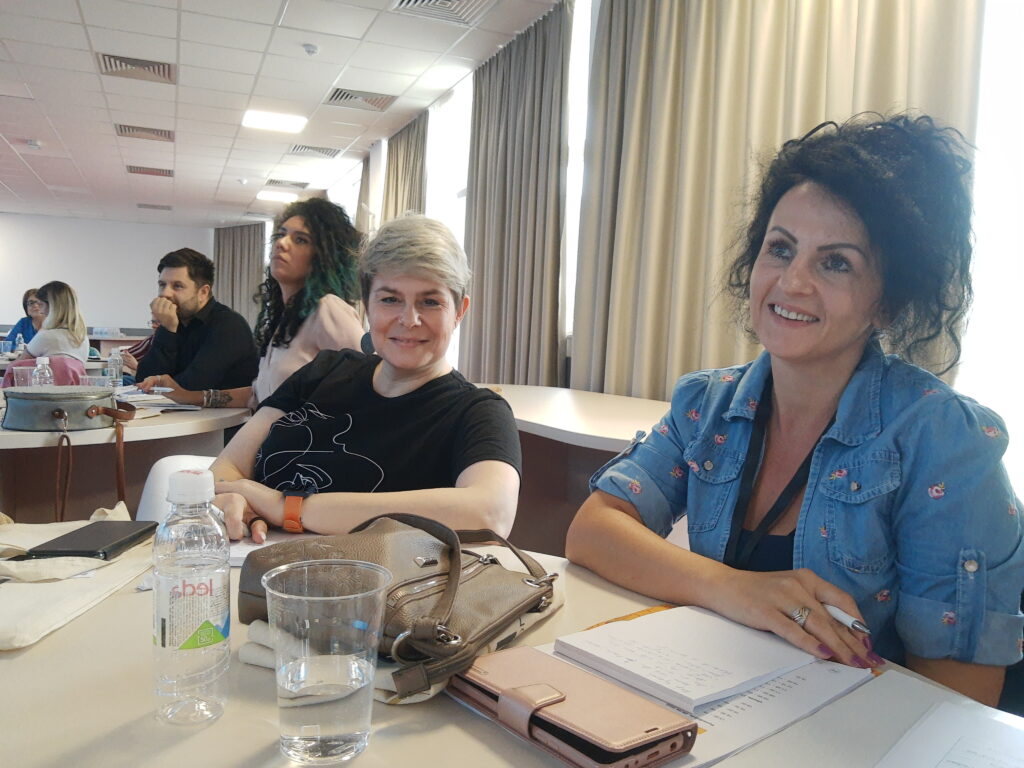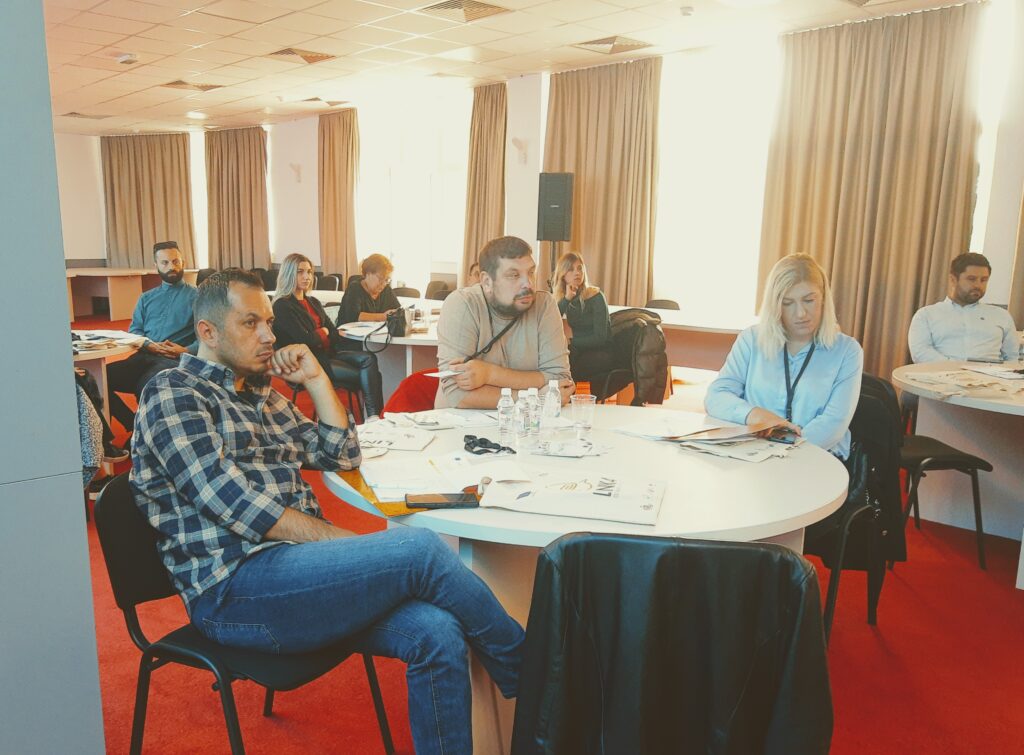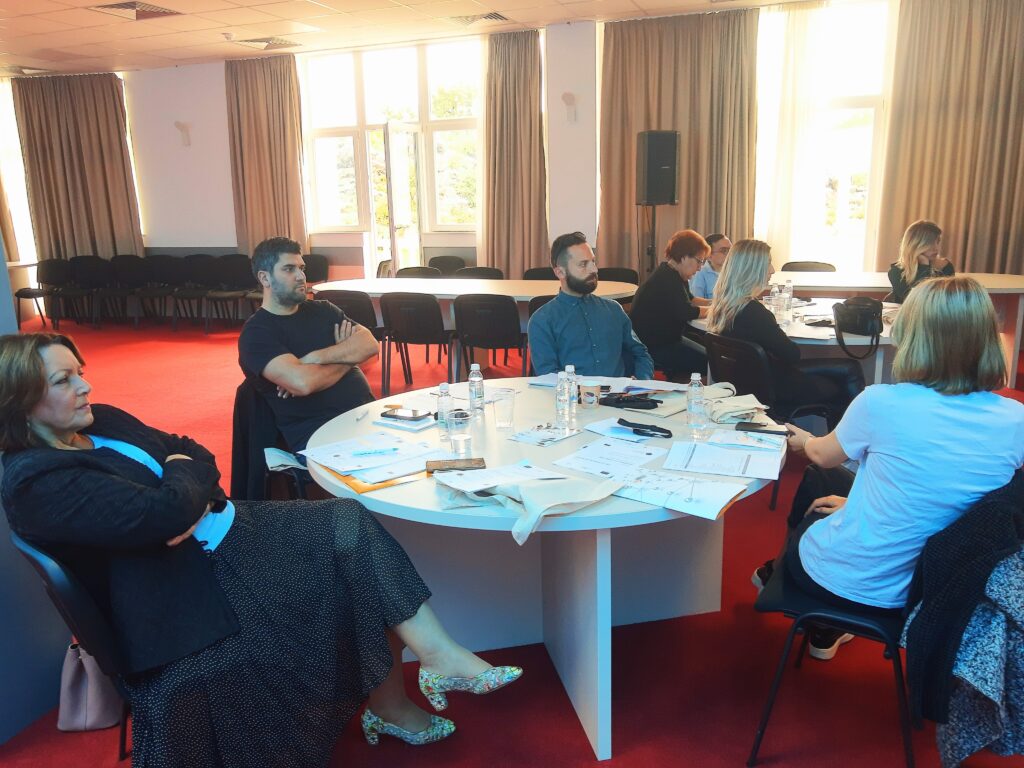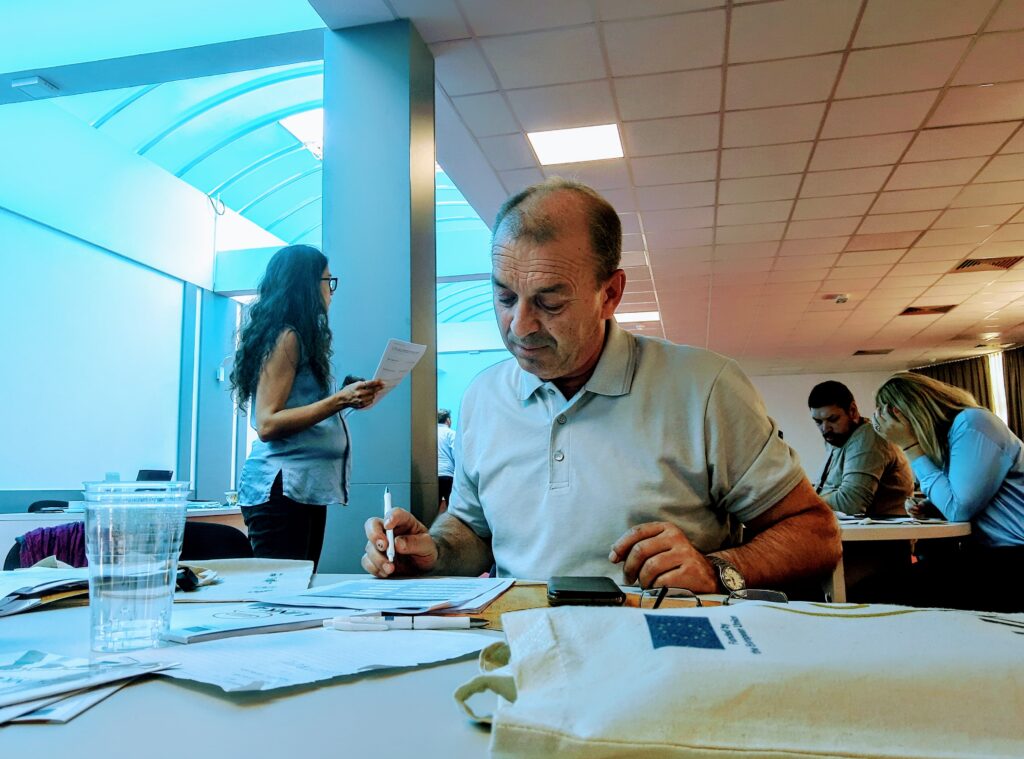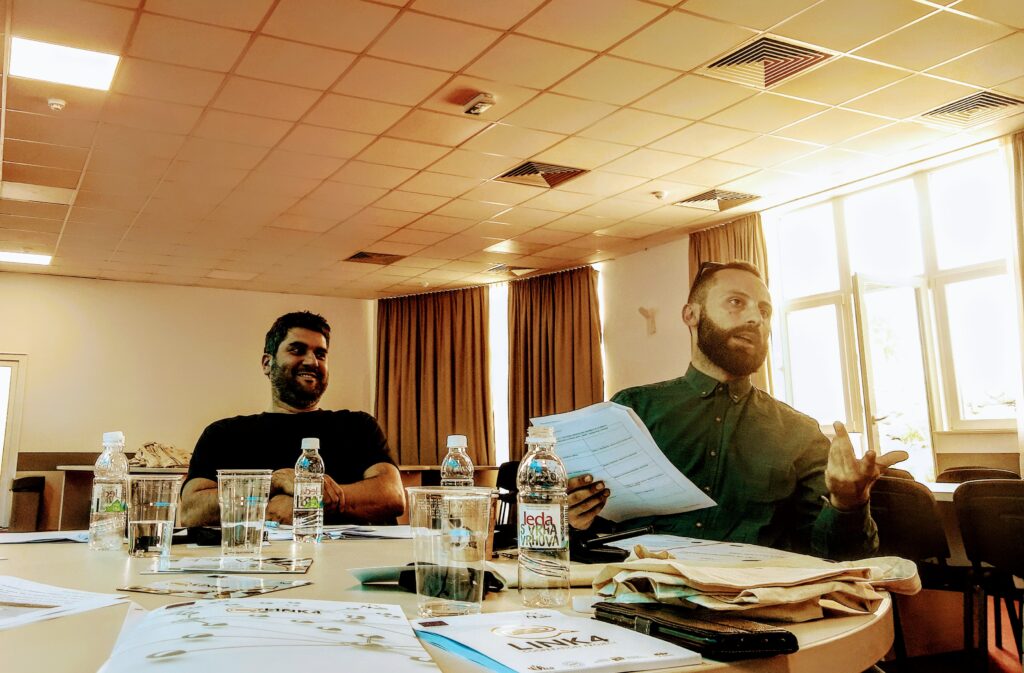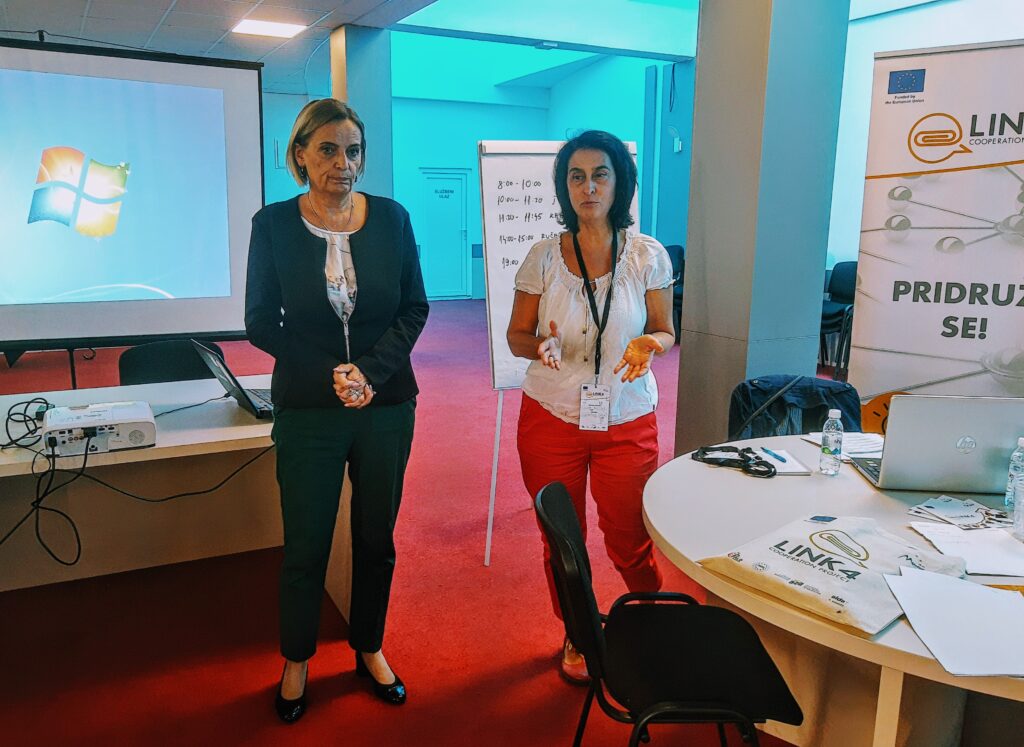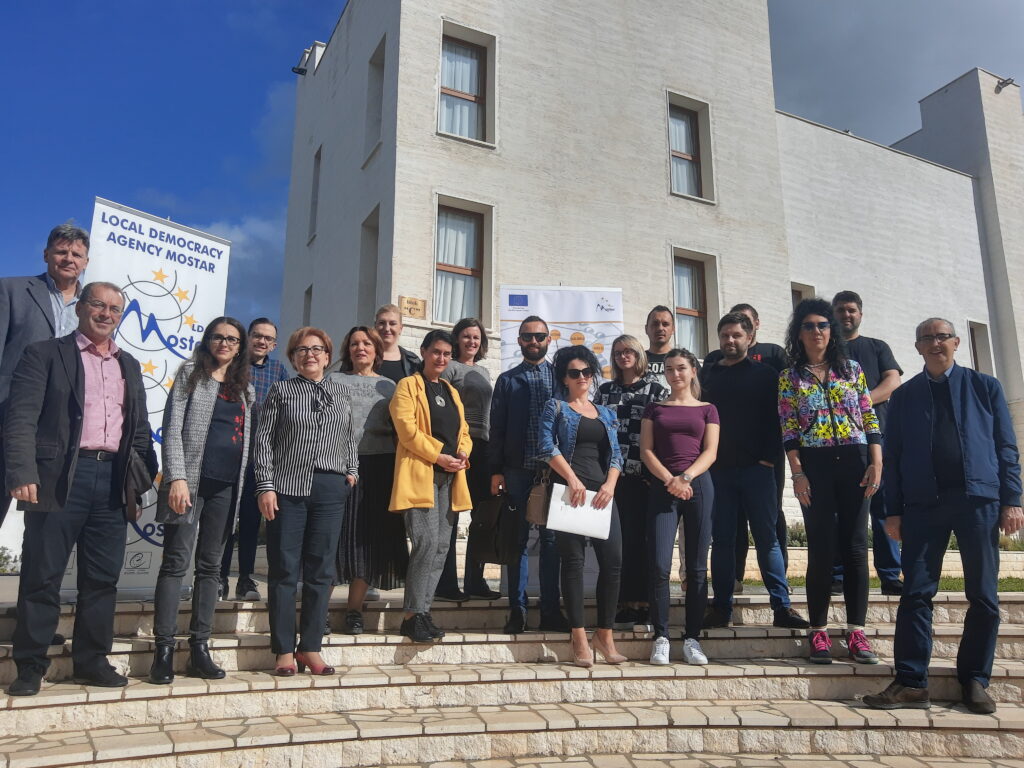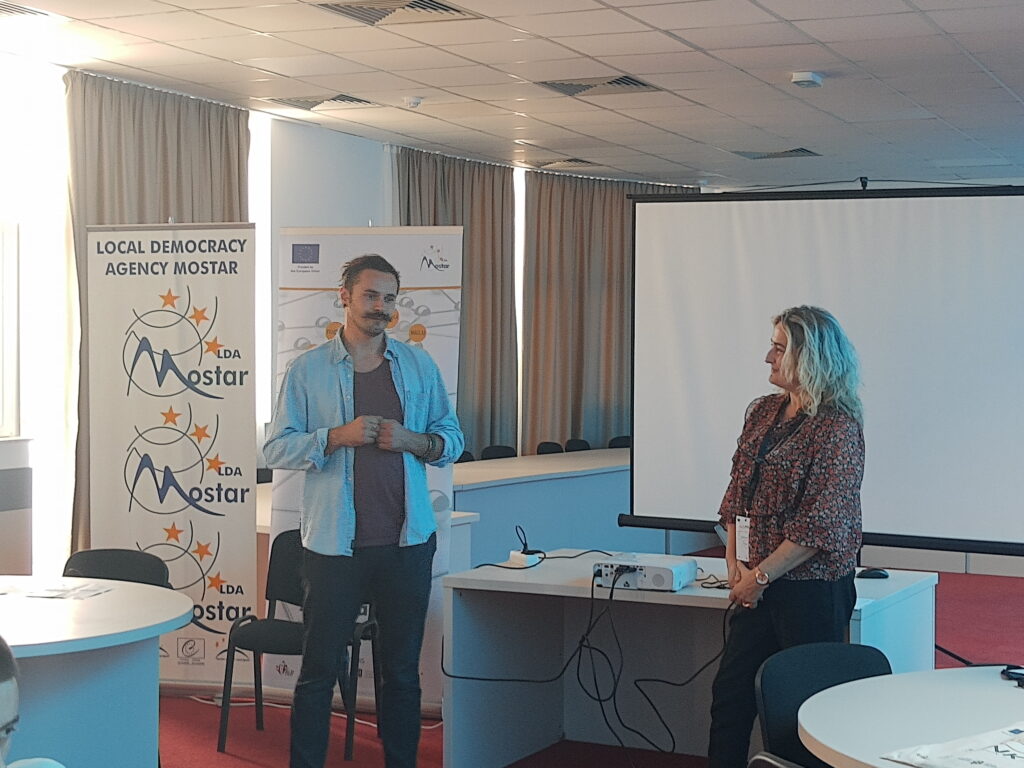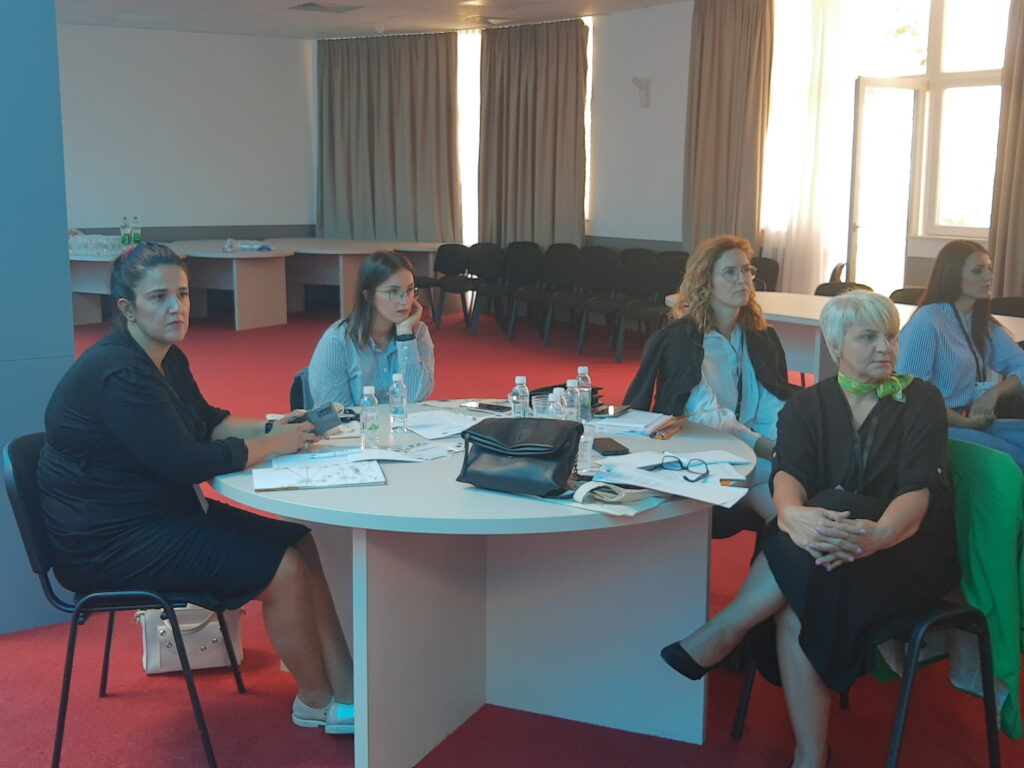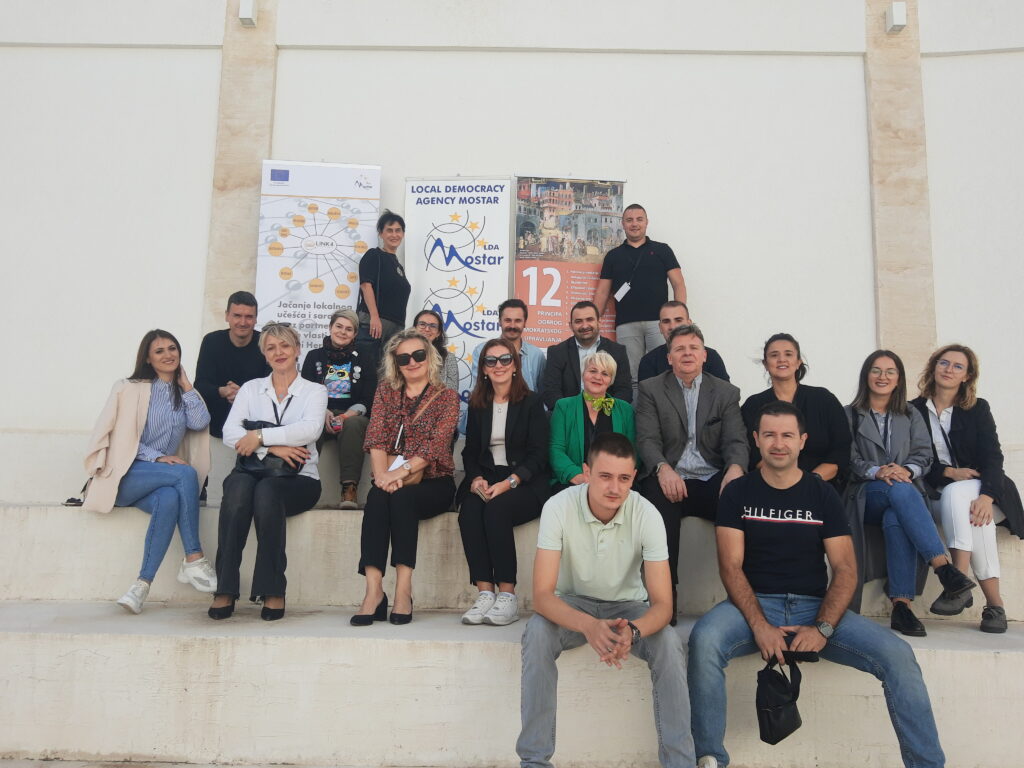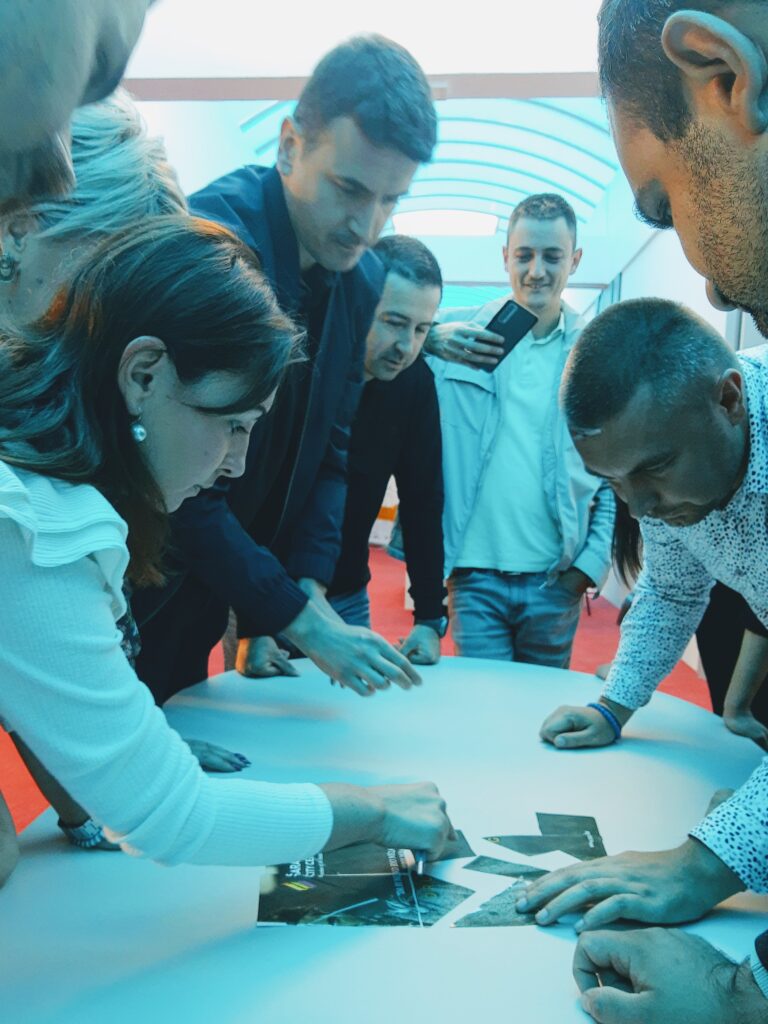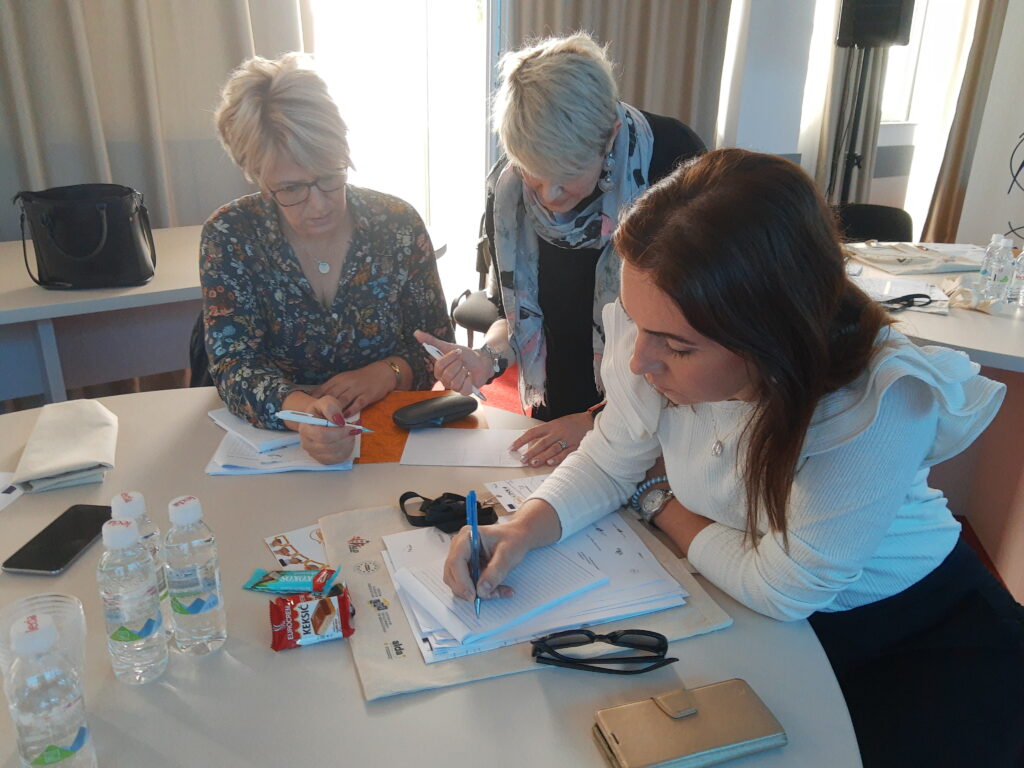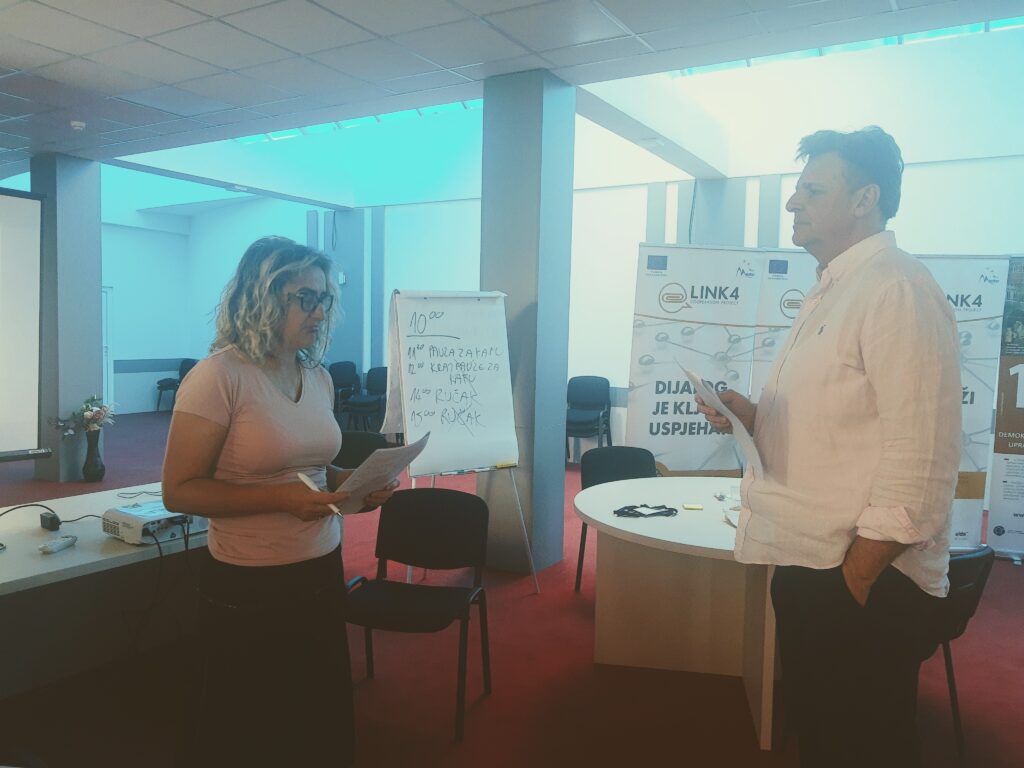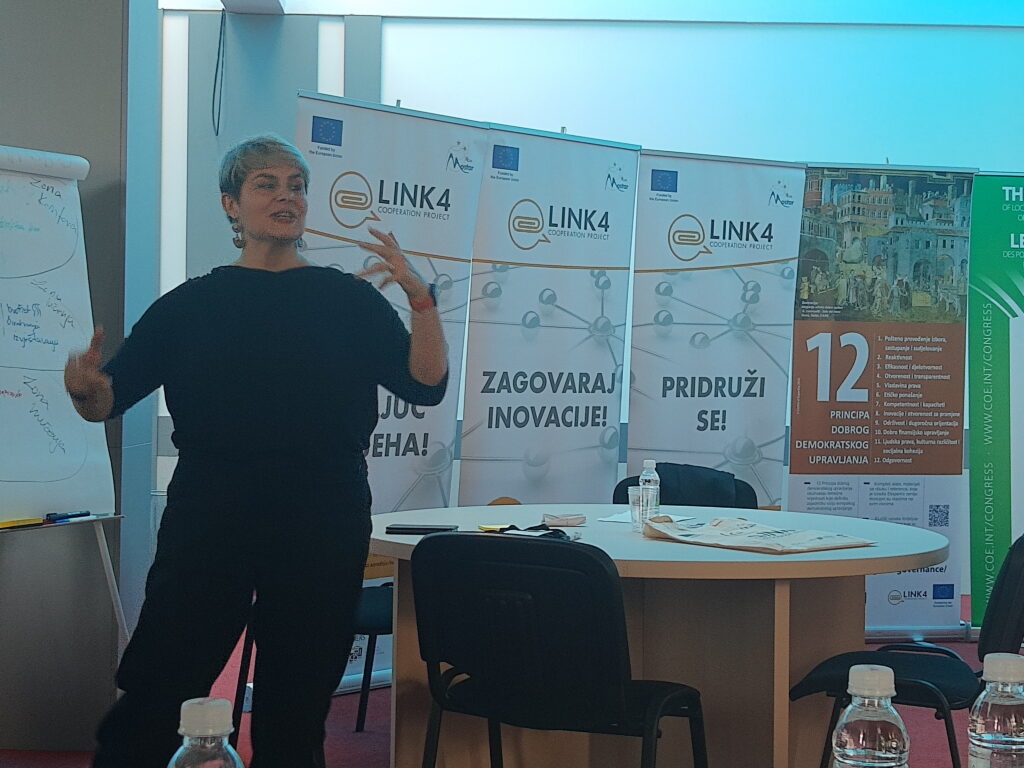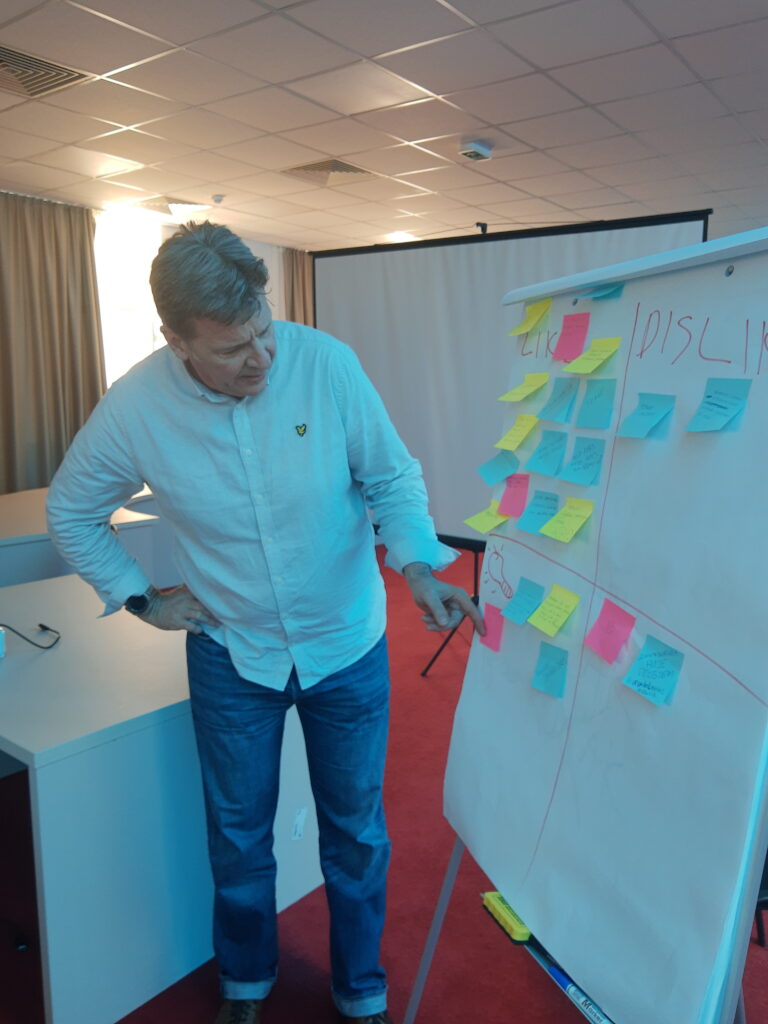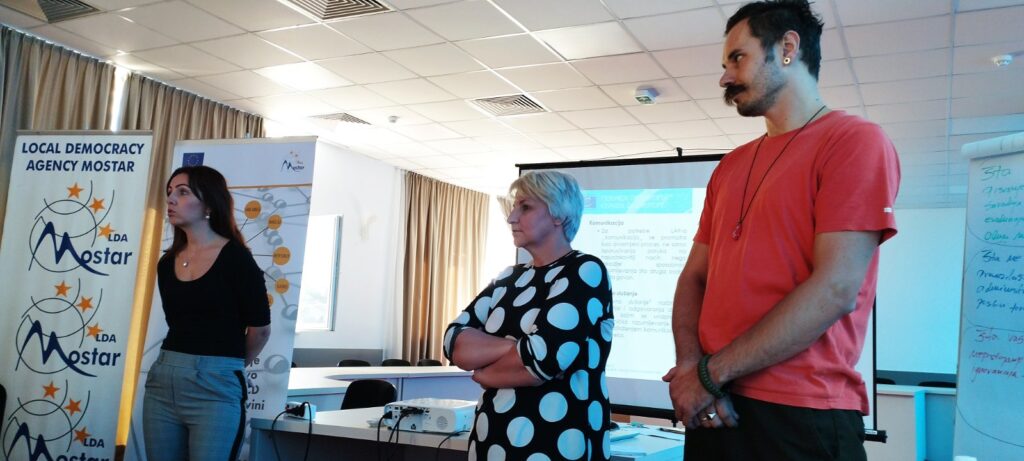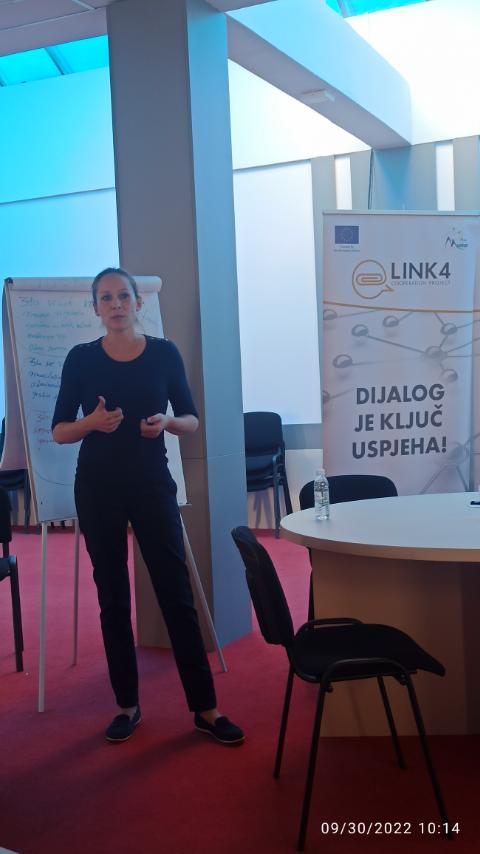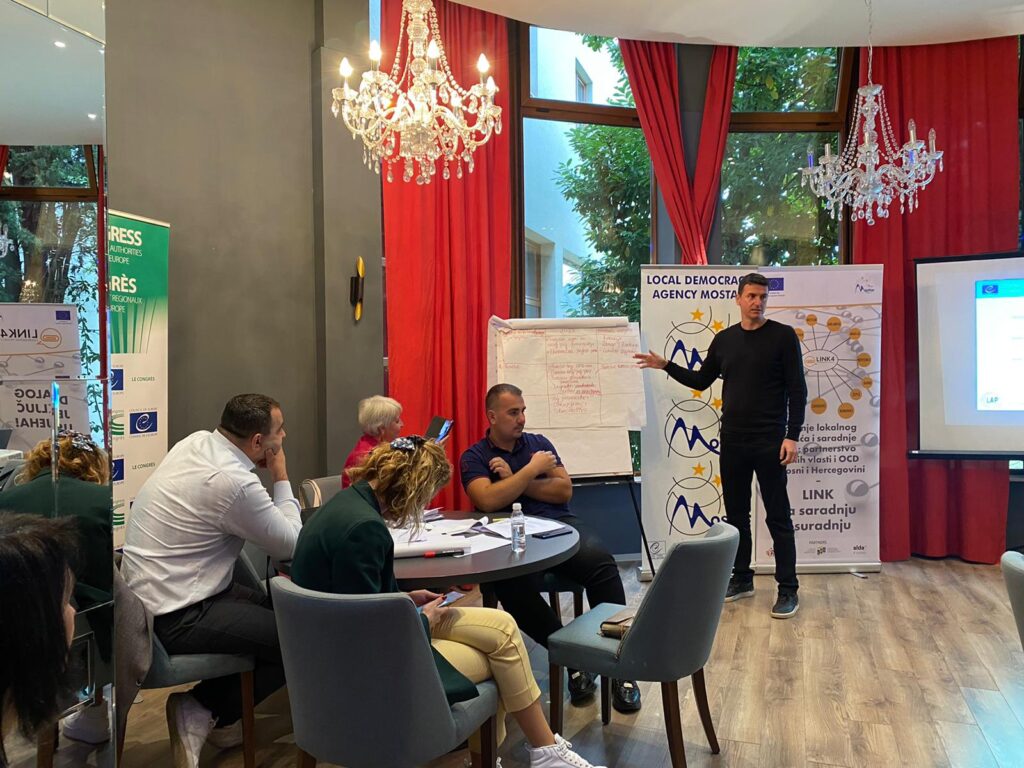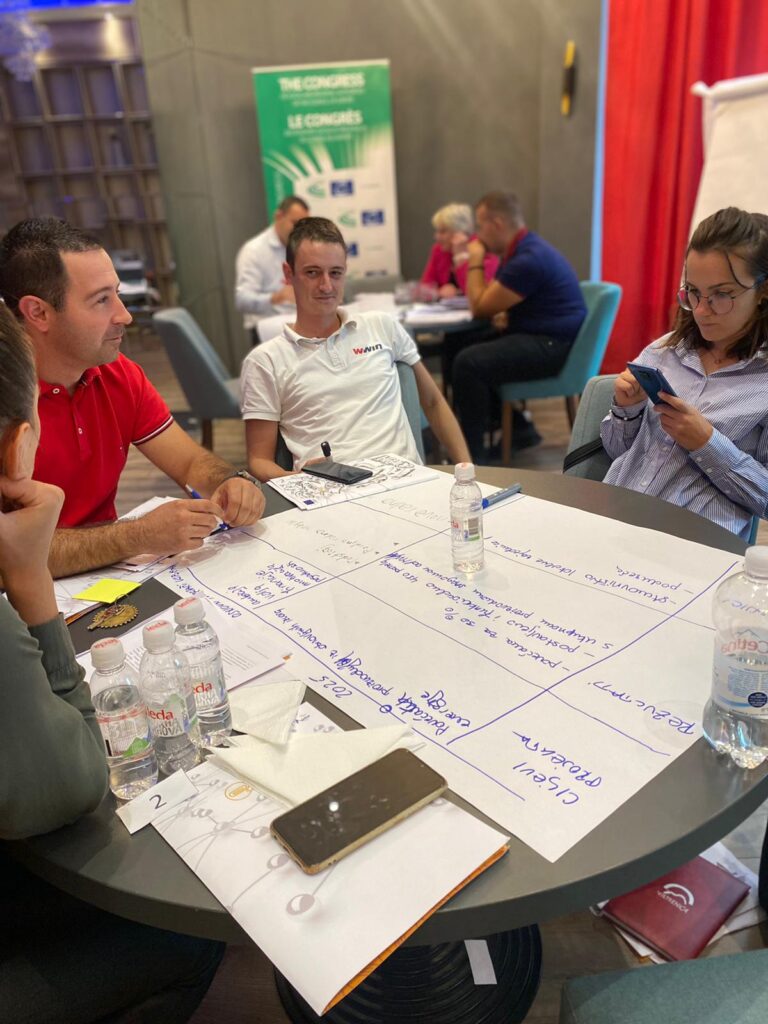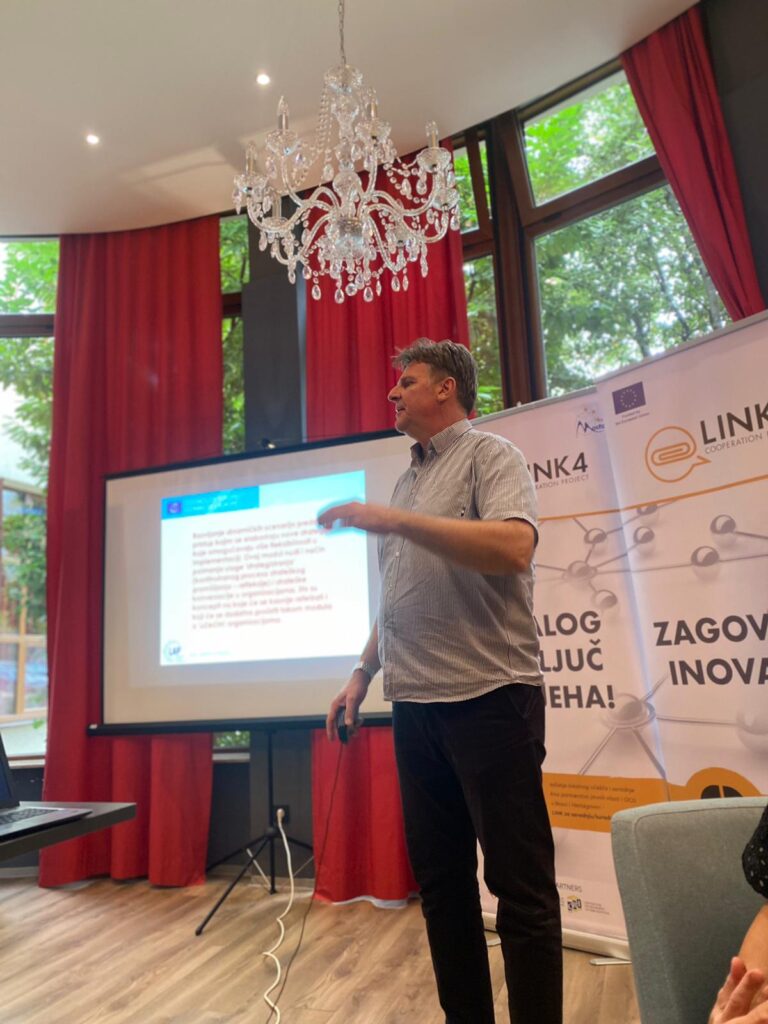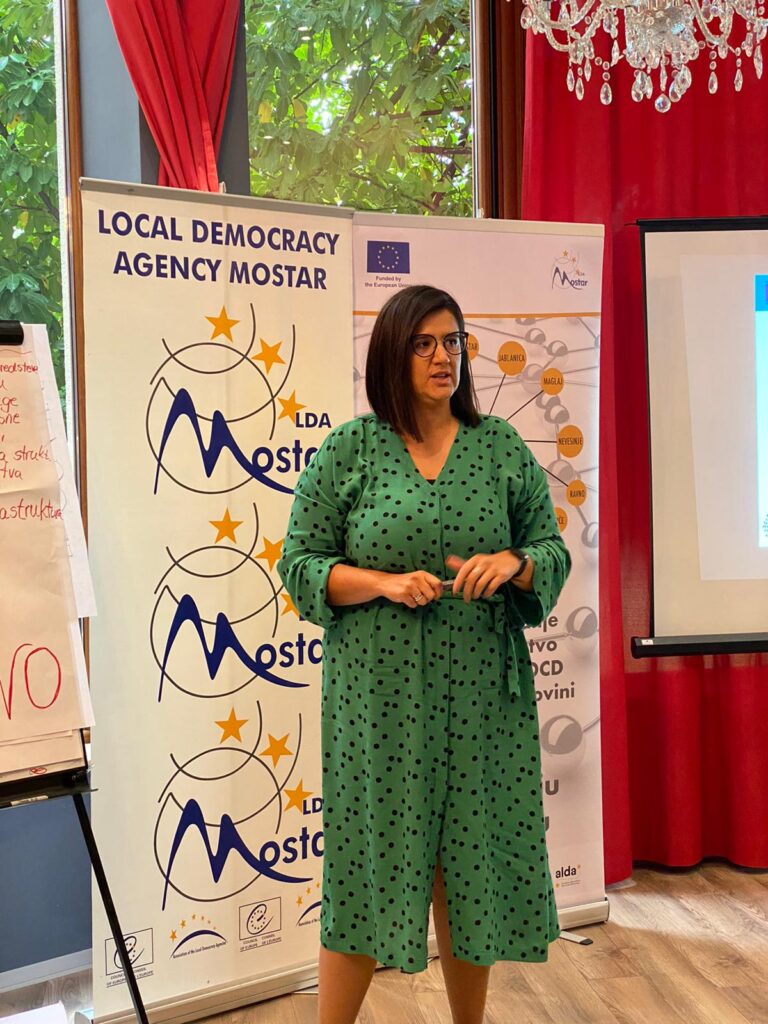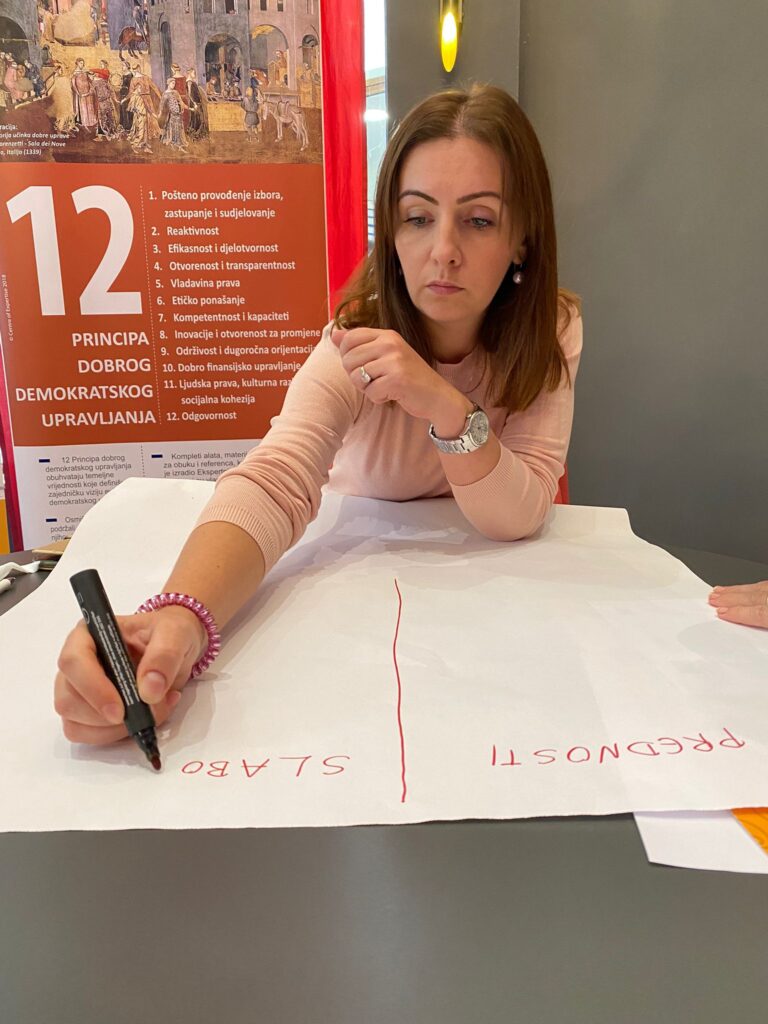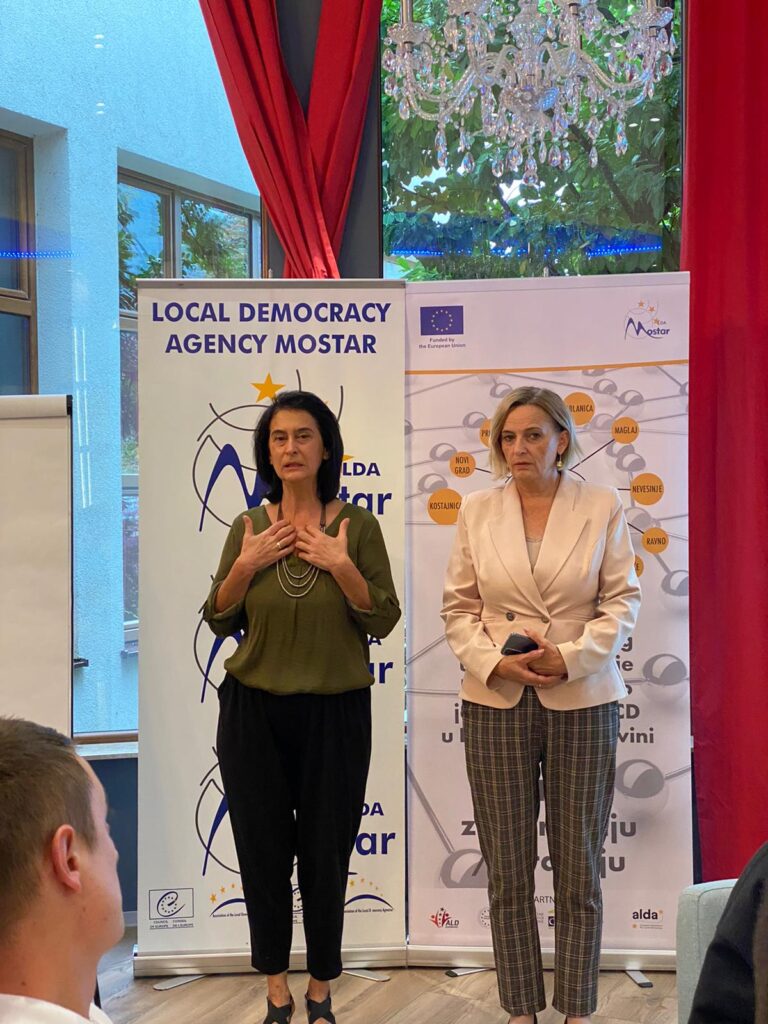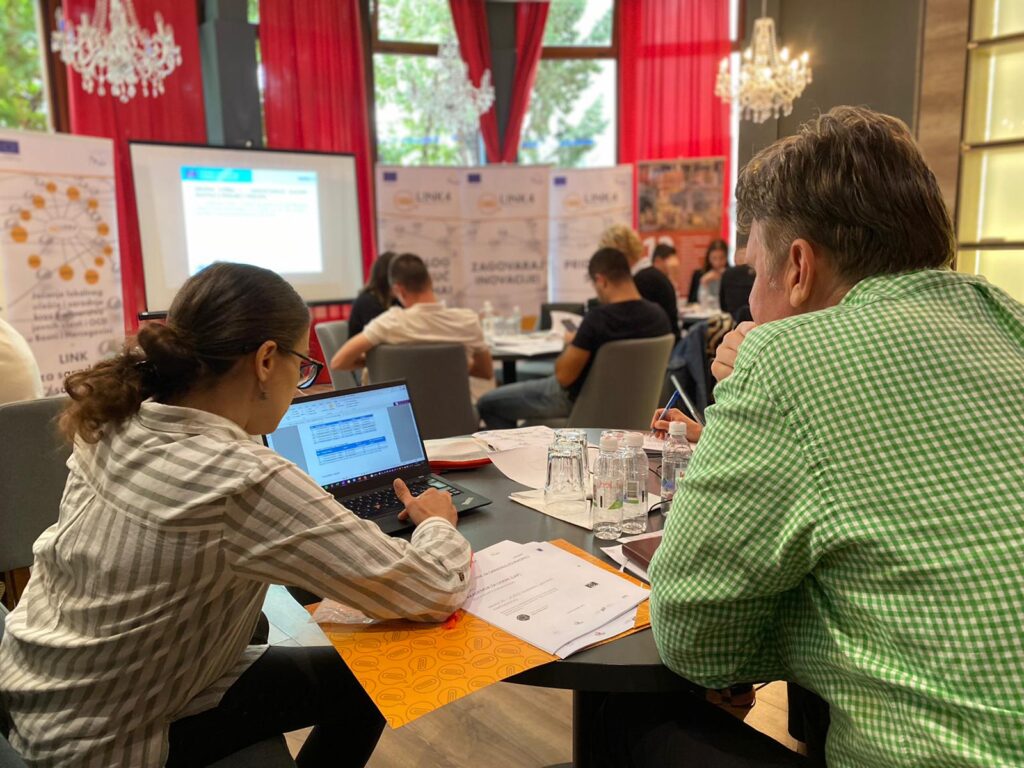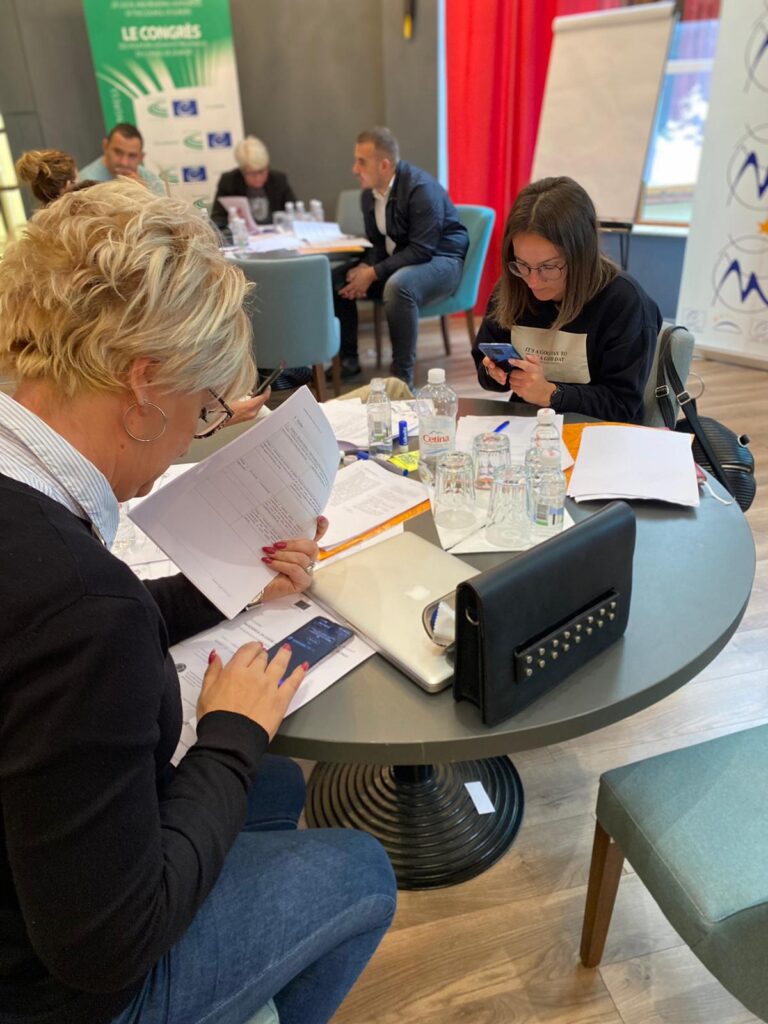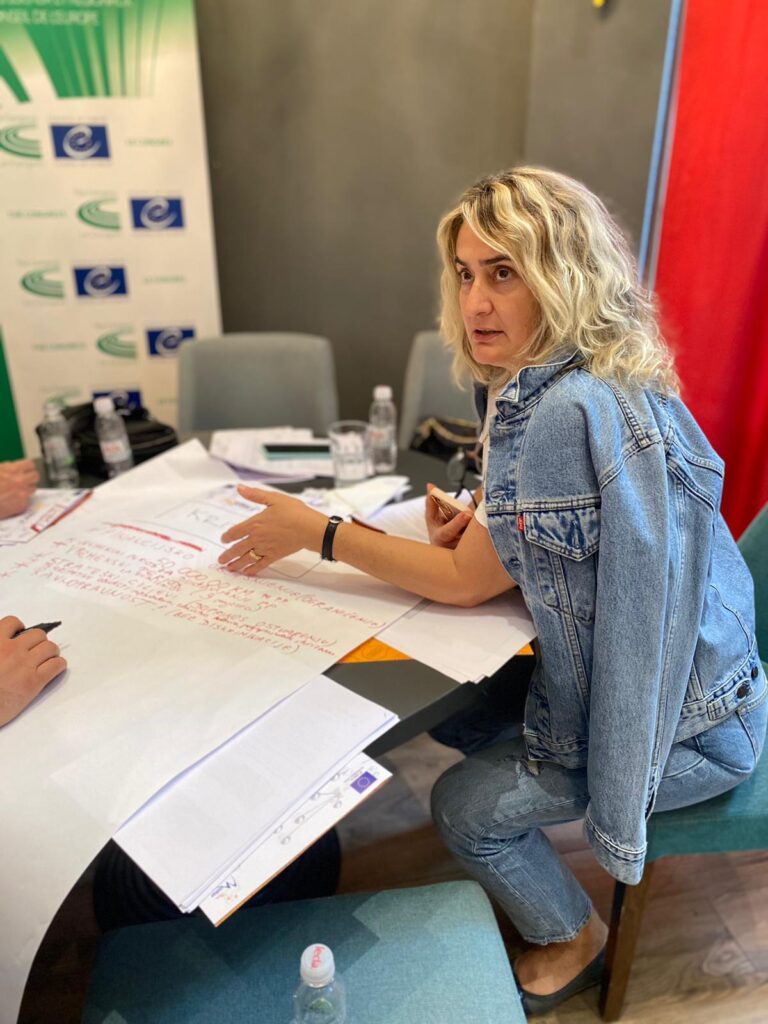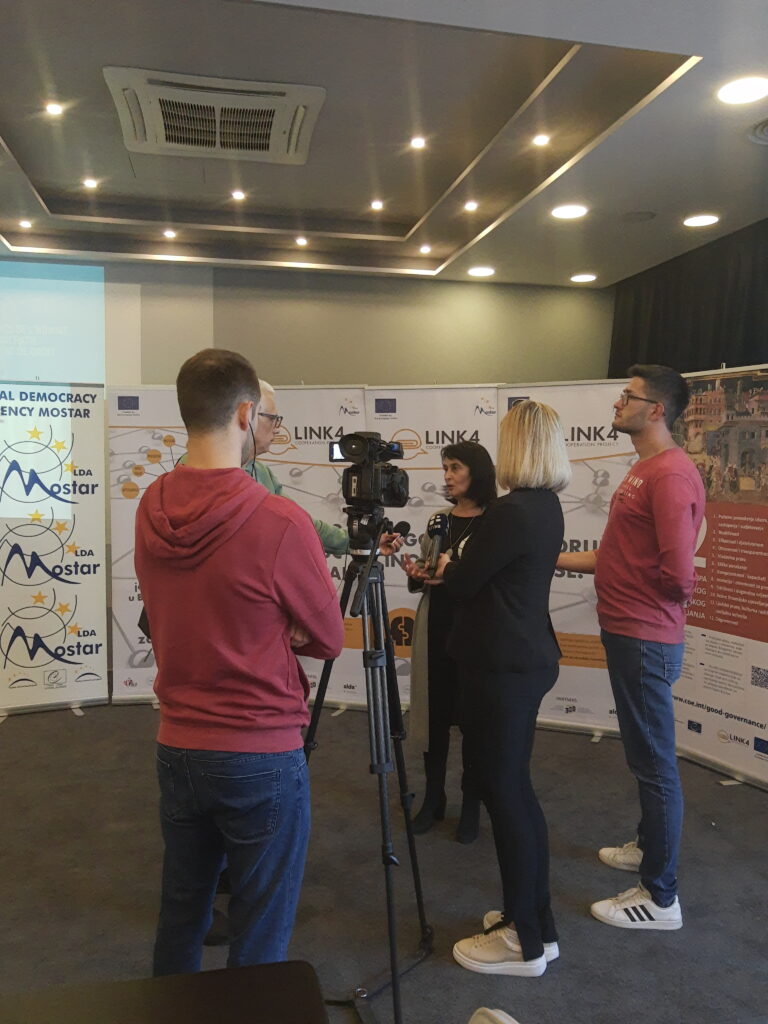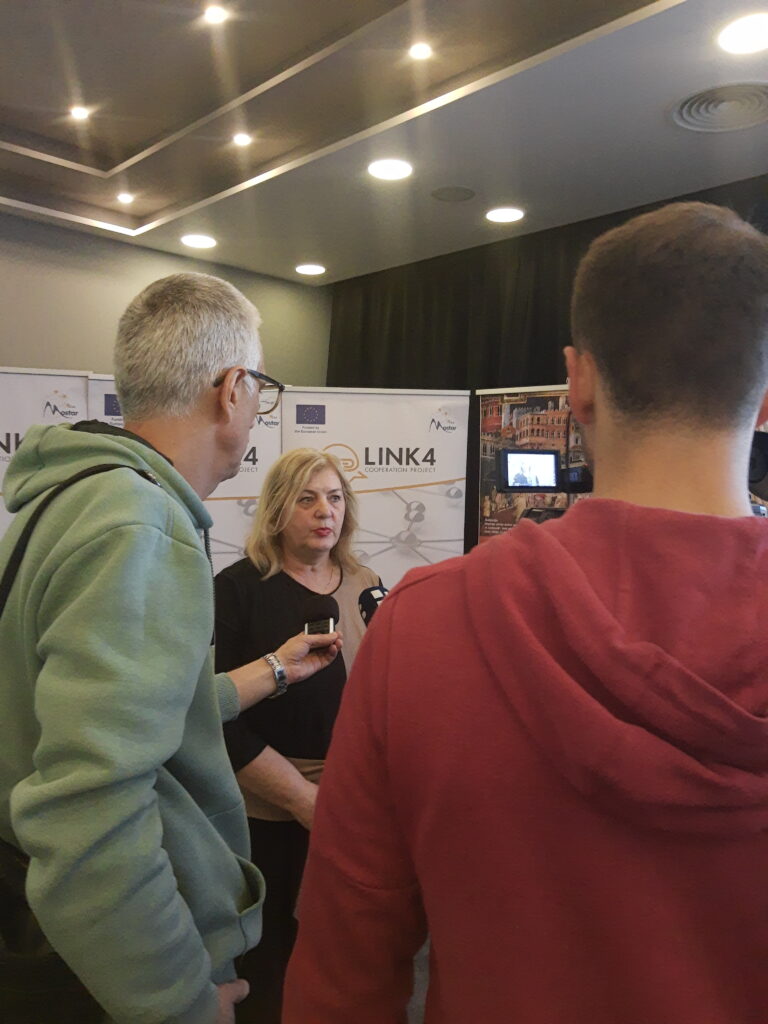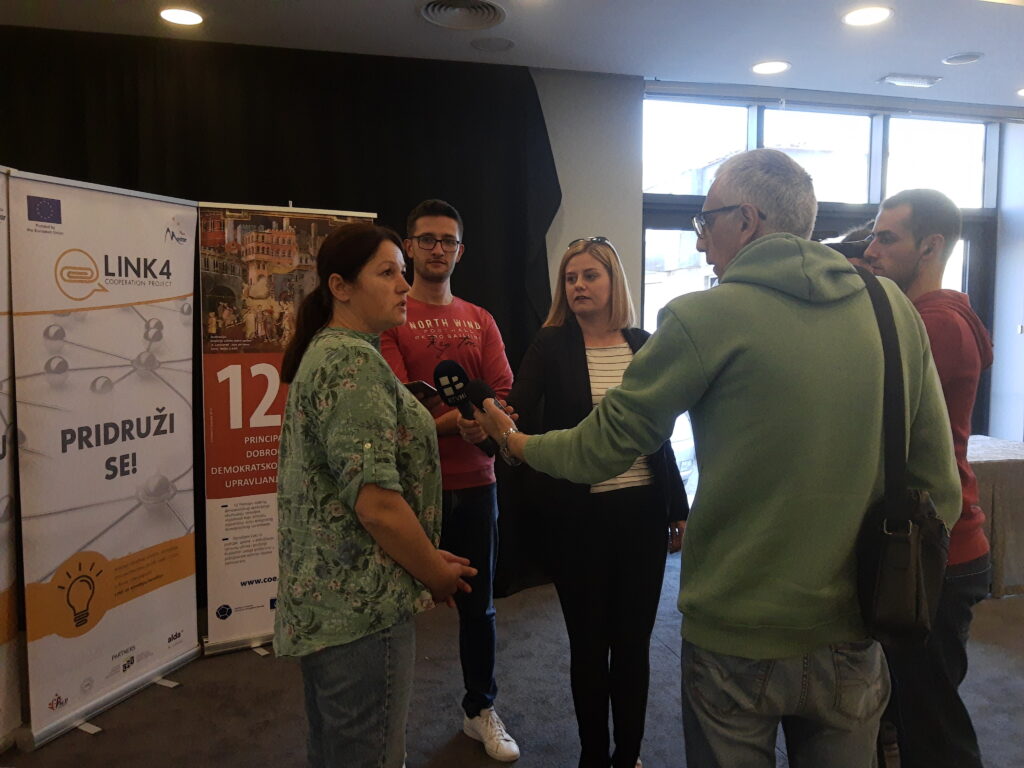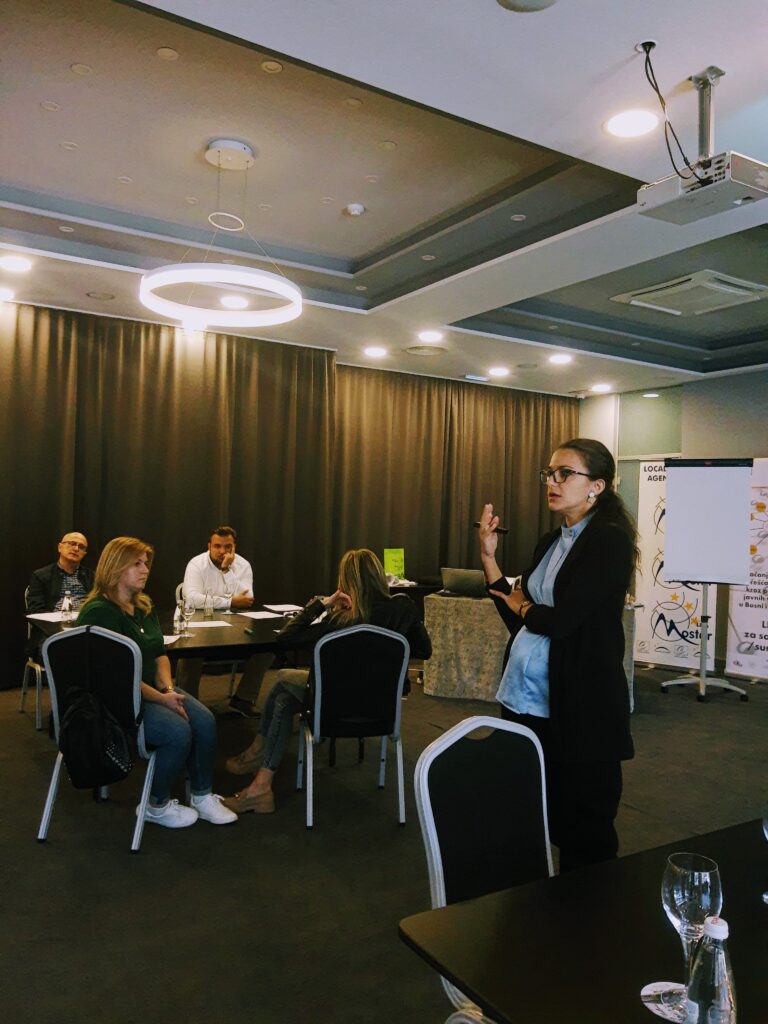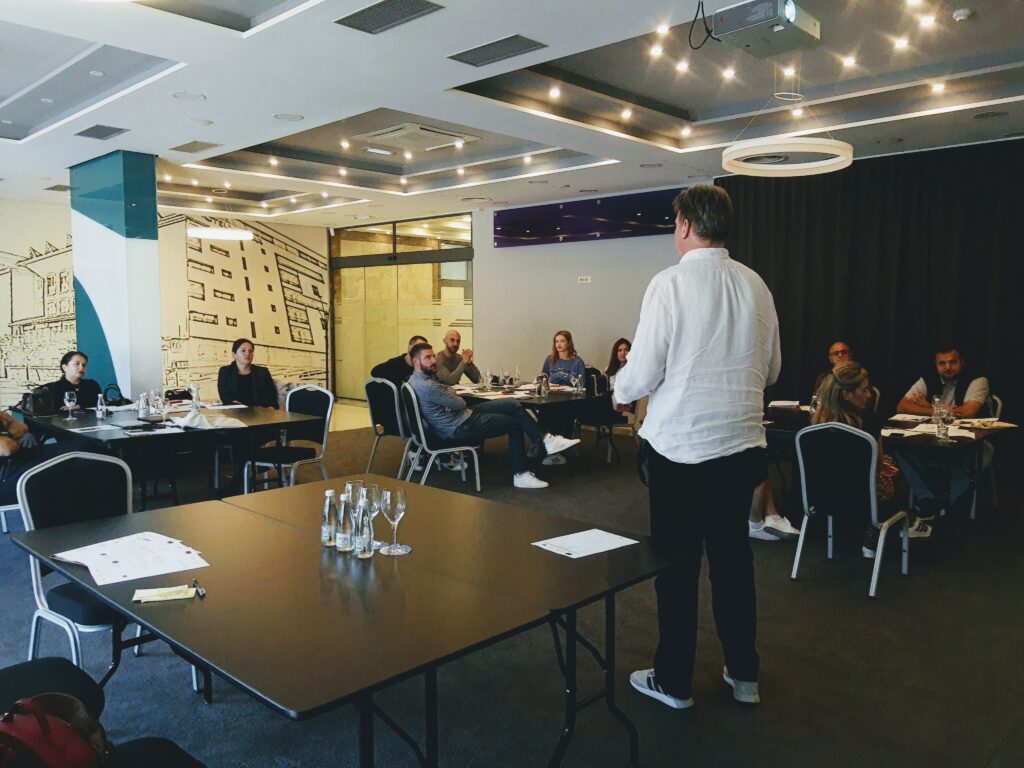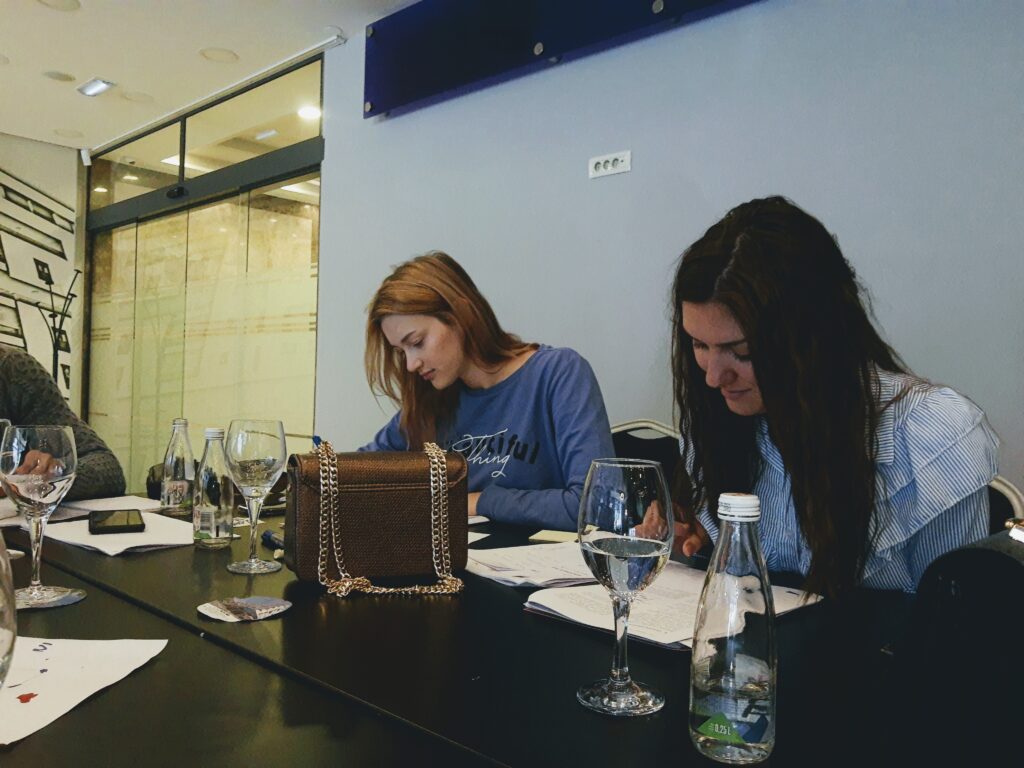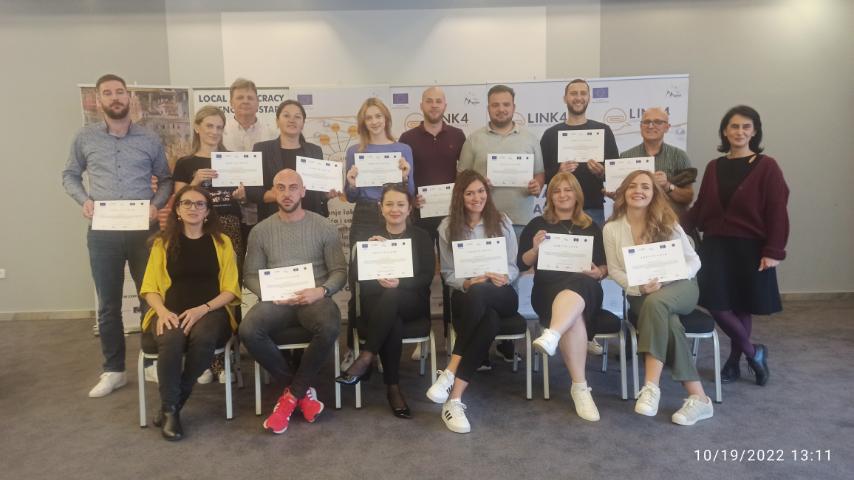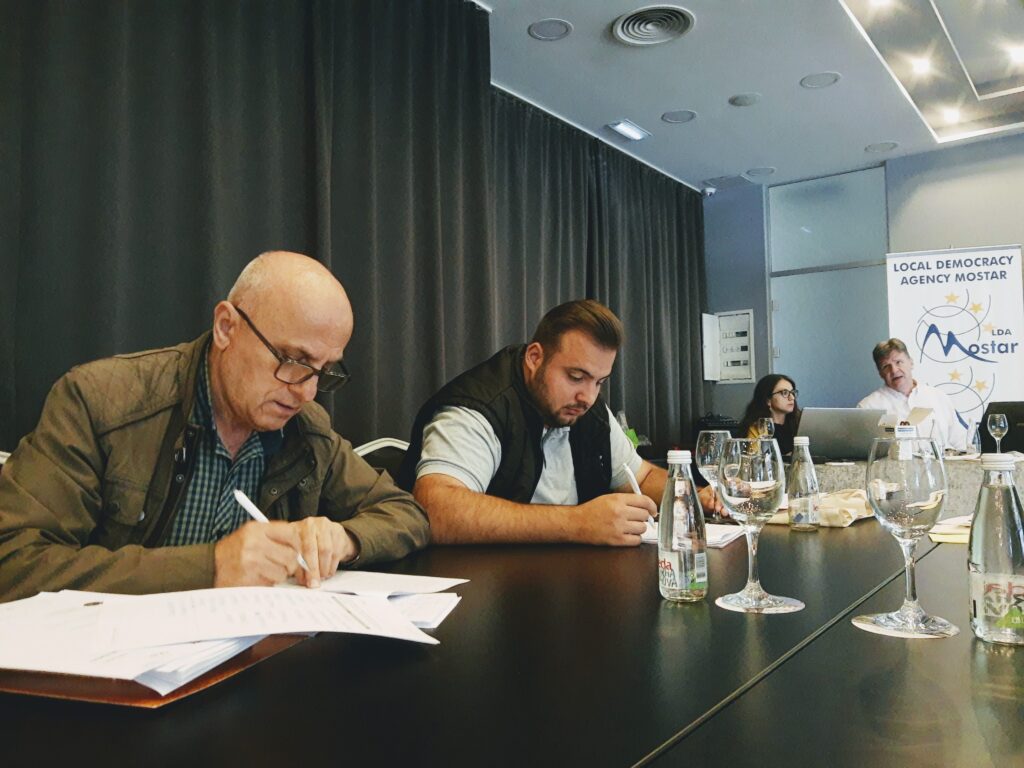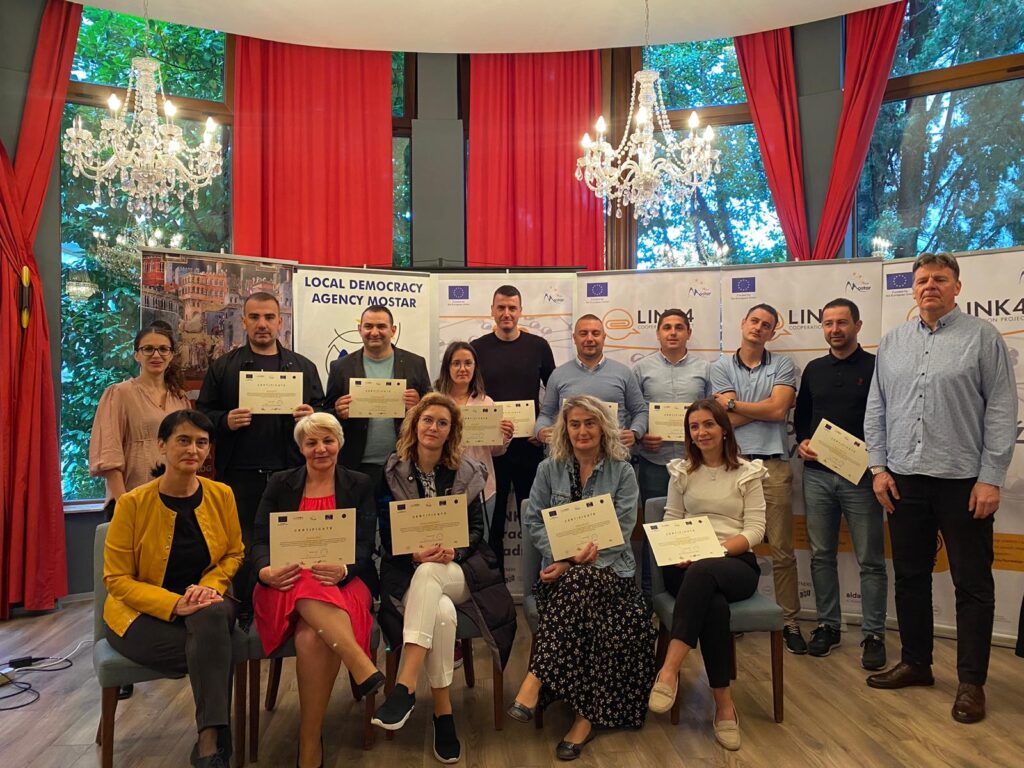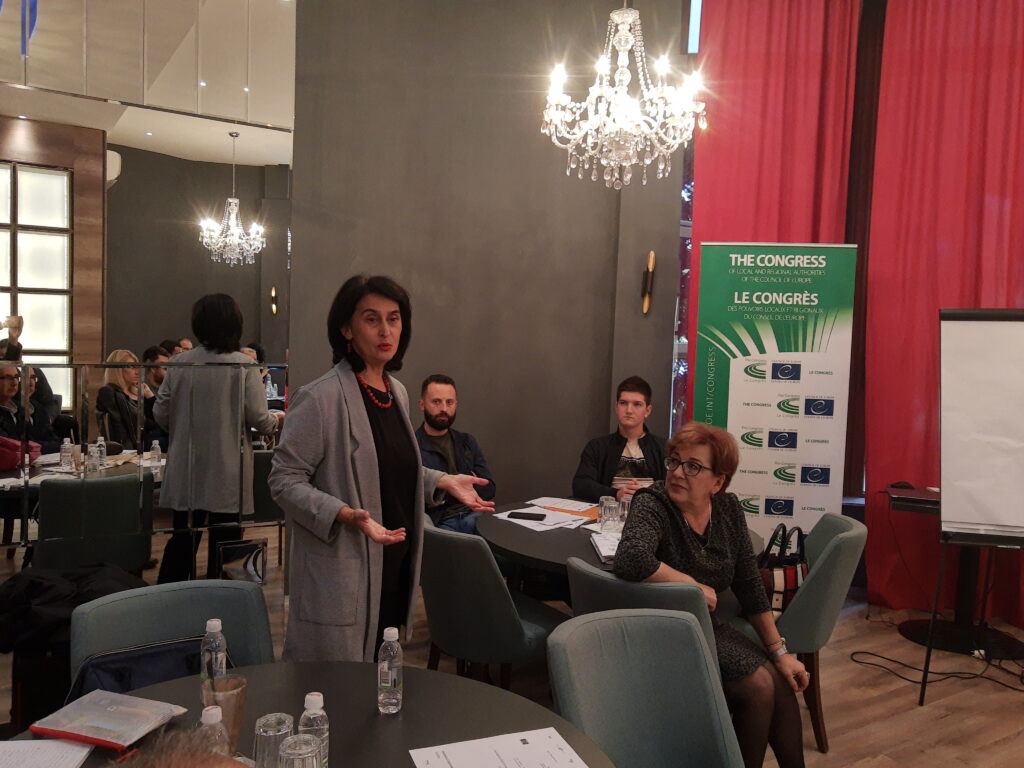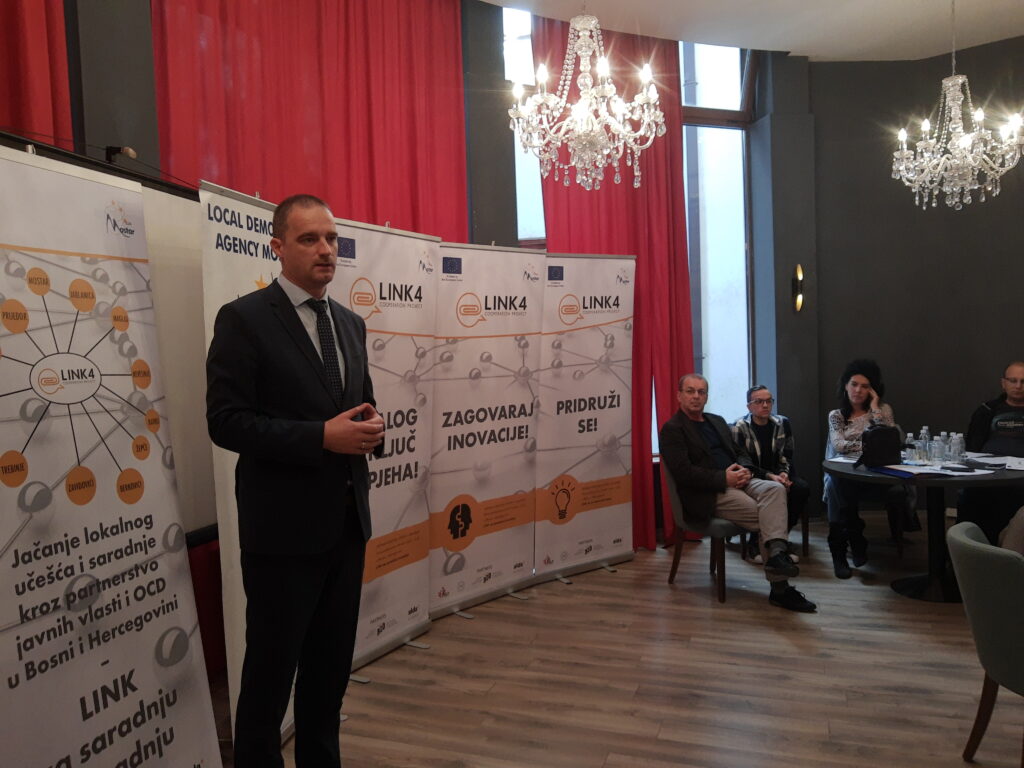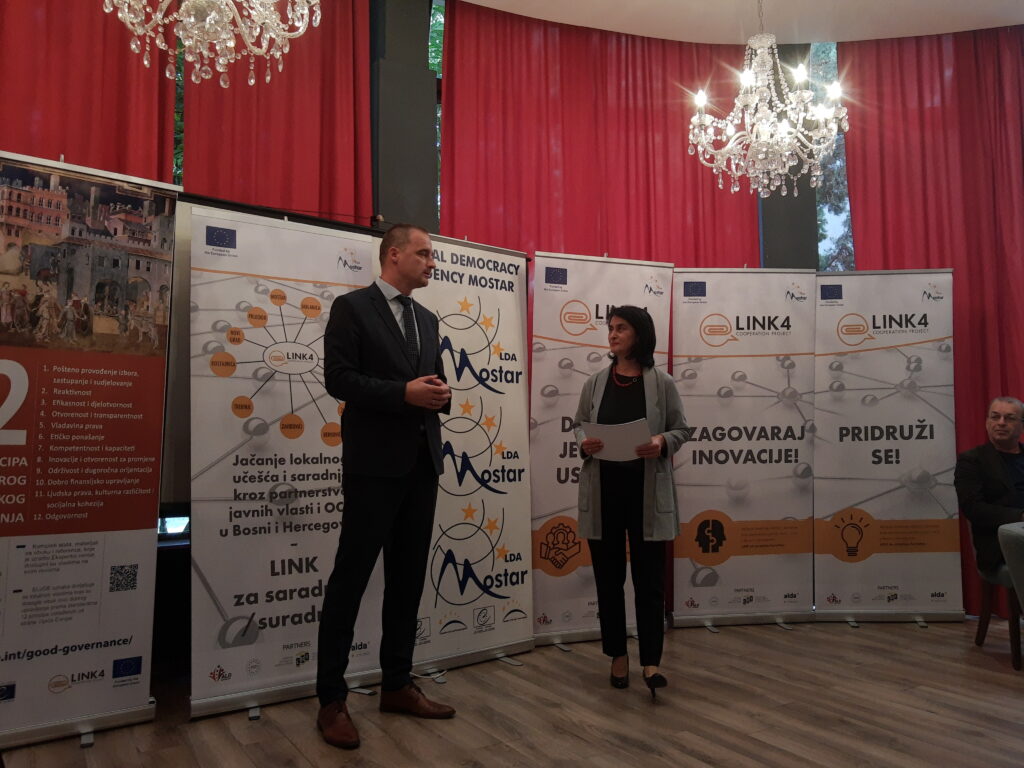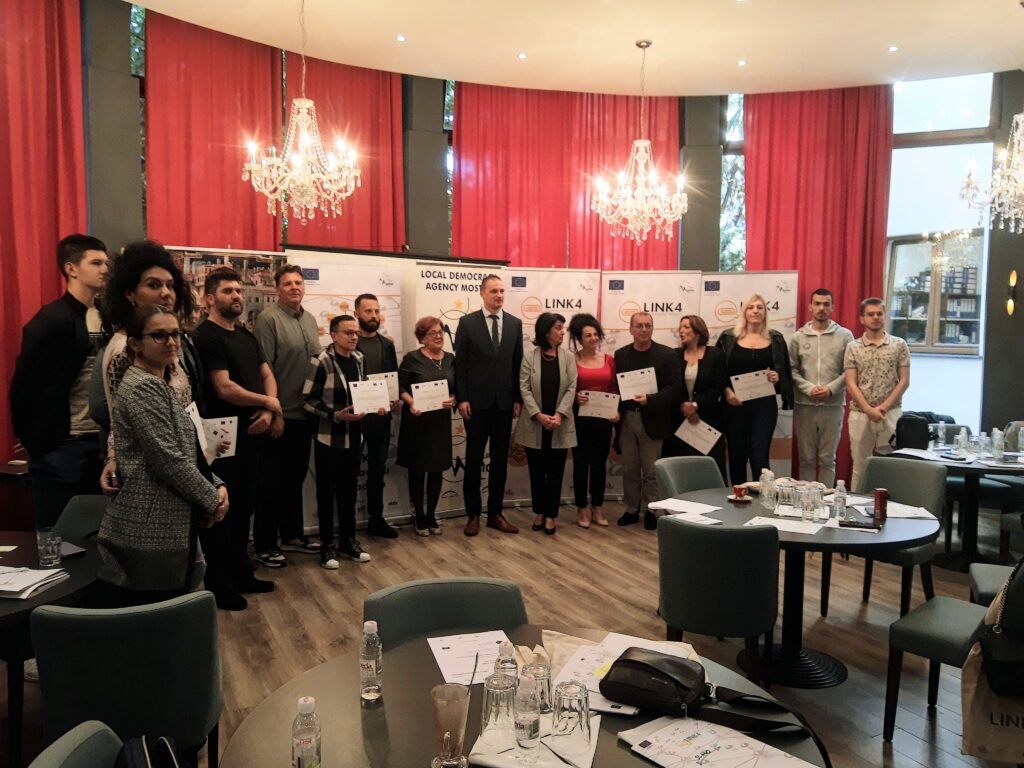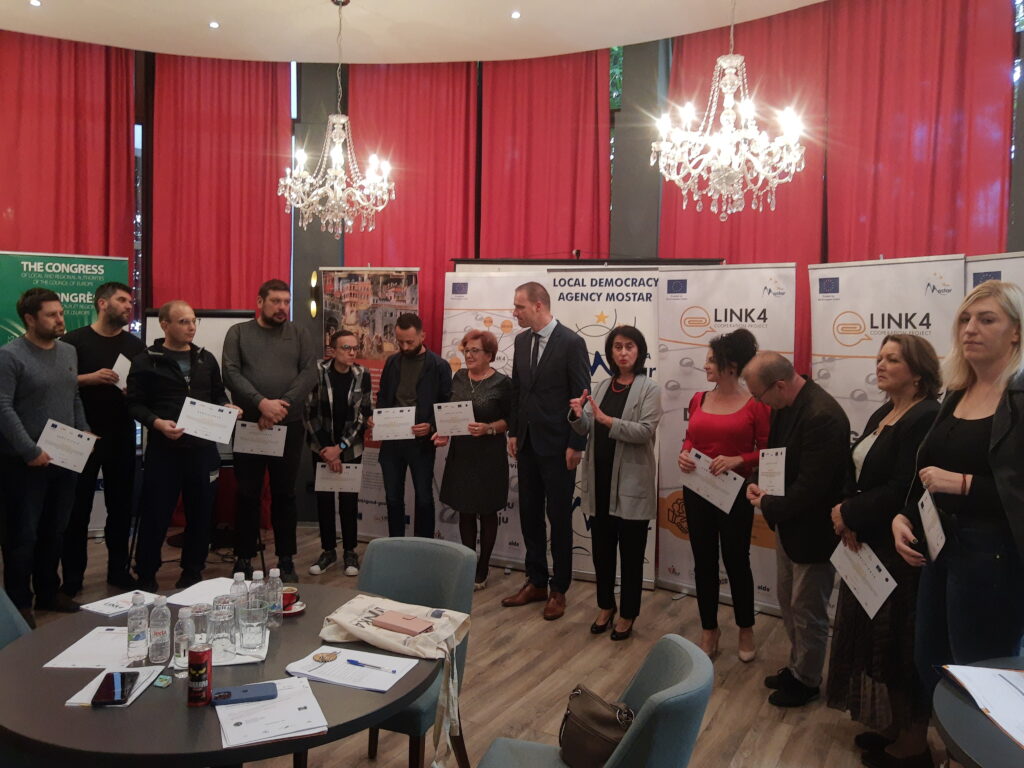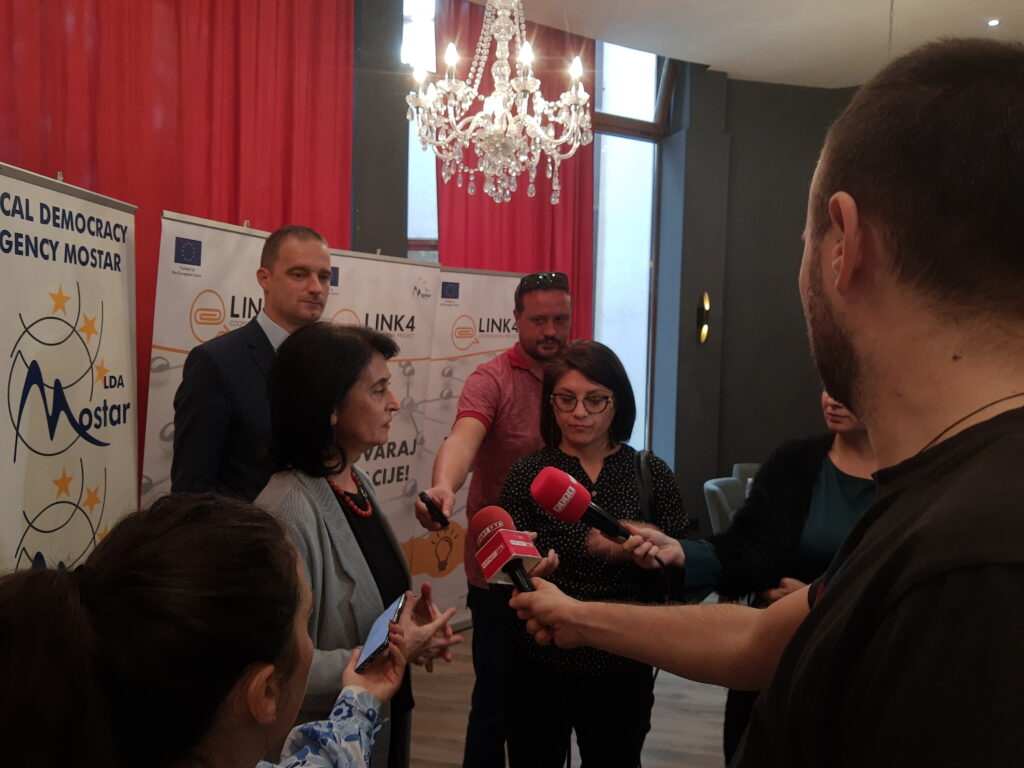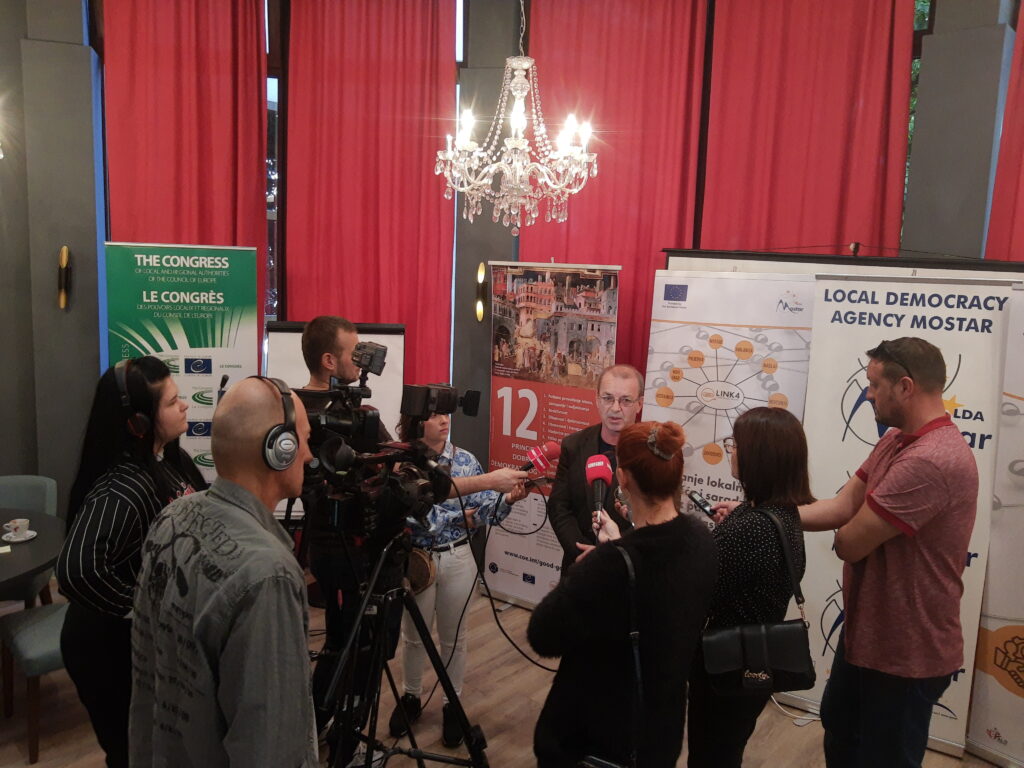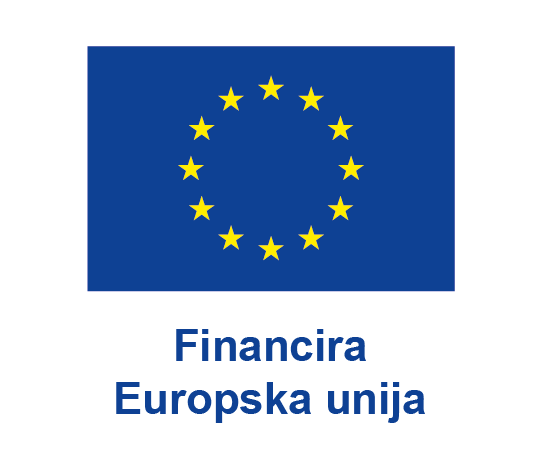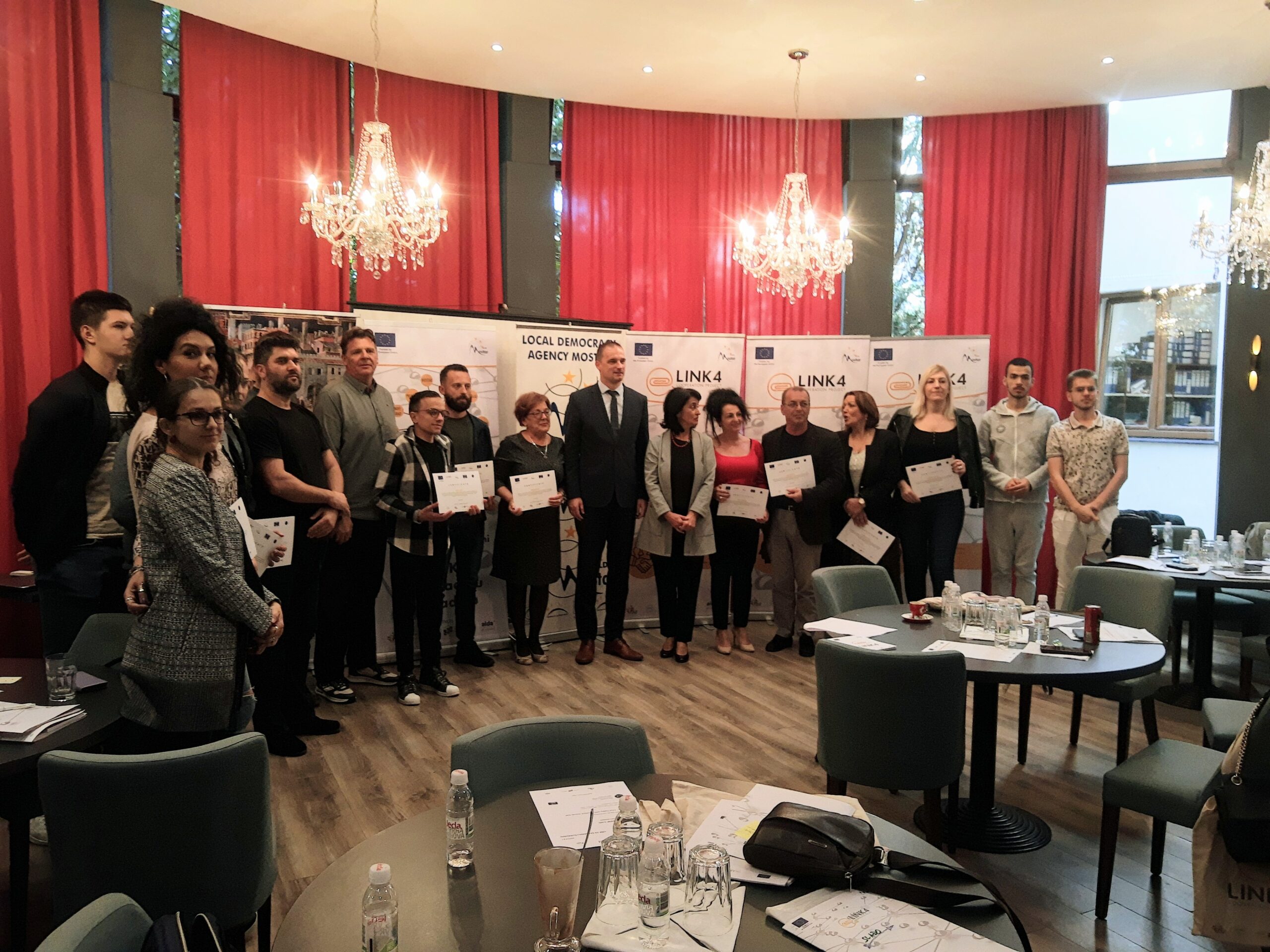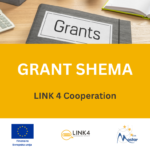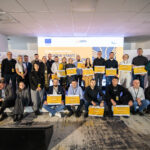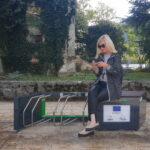As a part of the three-year long “LINK 4 Cooperation” project, funded by the European Union, the Local Democracy Agency Mostar (LDA Mostar) implemented a series of trainings through the Council of Europe’s Leadership Academy Program (LAP). The training is intended for representatives of local governments and civil society organizations from Berković, Jablanica, Kostajnica, Maglaj, Mostar, Nevesinje, Novi Grad, Prijedor, Ravno, Trebinje, Zavidovići and Žepče.
LAP training, divided into two cycles, was successfully completed by three groups of participants during September and October 2022. Under the guidance of LAP trainers certified by the Council of Europe, more than 60 participants went through an intensive program having the opportunity to exchange the existing practices of their institutions and organizations, detected shortcomings in the work, and based on what they had learned, tried to find ways to improve it.
Referring to the importance of education through LAP, Dženana Dedić, director of the Local Democracy Agency Mostar, pointed out: “Building and strengthening the capacity of local government and civil society organizations, and their networking as an indispensable part of the process, foresees the creation of a basis for starting participatory processes in local communities. The inclusion of citizens in these processes is a key step in the stabilization and creation of the trust, and true cooperation for the creation of a new positive environment and better living conditions.”
The training modules were selected based on a previously performed assessment of the condition and needs of the target groups, including a multi-month self-assessment process of 12 local governments included in the project. Additionally, the modules were adapted having in mind results of the questionnaire sent out to CSO representatives from the same 12 municipalities/cities.
Alisa Aliti Vlašić, certified LAP trainer of the Council of Europe, emphasized the benefit of LAP as an extremely useful educational tool, stressing: “The Leadership Academy, as an extremely interactive program, requires active and engaged participants, and with this group of representatives of public administrations and non-governmental organizations, we believe that we have achieved extremely positive results by providing the participants with the knowledge and tools necessary for good management and strengthening their leadership skills in order to strengthen the local community together.”
The Leadership Academy Program (LAP) is a training program primarily intended for public authorities at various levels for strategies and capacity building taught in 2 cycles. The purpose of the program is to teach participants better leadership, management and planning skills. The main goal of LAP is to acquire knowledge and tools that will enable participants to better manage responsibility and changes within the institutions they come from. In order to support the democratization process, through the strengthening of good administration and capacity building of local authorities and civil society, the Local Democracy Agency Mostar, in cooperation with project partners, included representatives of civil society in the aforementioned Program.
The project “LINK 4 Cooperation” aims to strengthen the capacity of local authorities and civil society organizations in conducting participatory processes in order to jointly identify specific community problems and, thanks to the participatory approach, find the most optimal solutions. The Local Democracy Agency Mostar is the project leader in cooperation with project partners: Local Democracy Agency Zavidovići, Local Democracy Agency Prijedor, Center for Development of Herzegovina (CRH) from Trebinje, ALDA – European Association for Local Democracy and ALDA Skopje as an associate partner. The implementation started on January 1, 2020 and will last until December 31, 2023. Its value is over EUR 540,000, of which the European Union provided over EUR 490,000 in grants.
